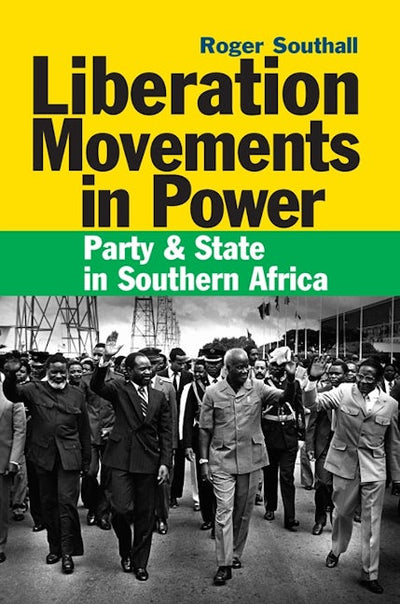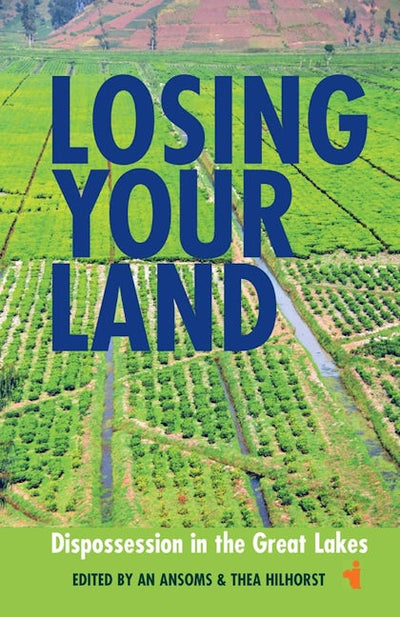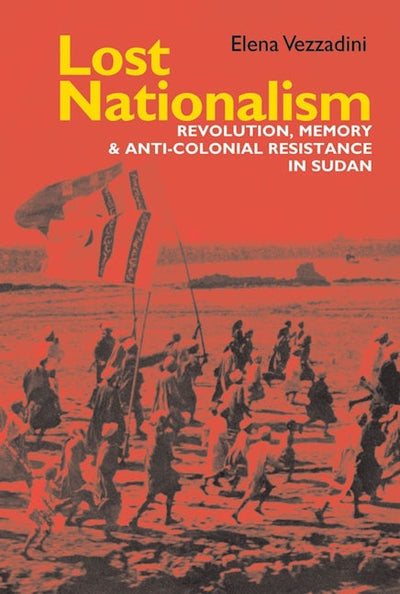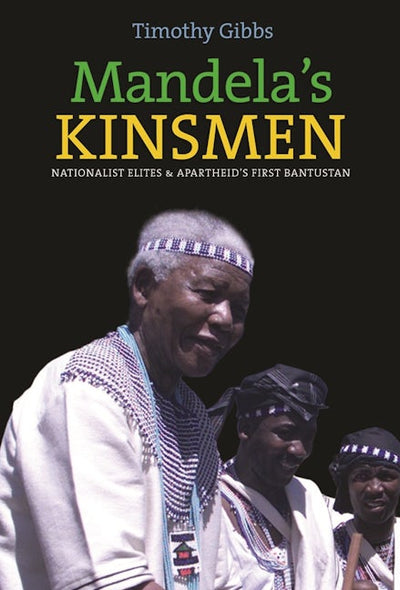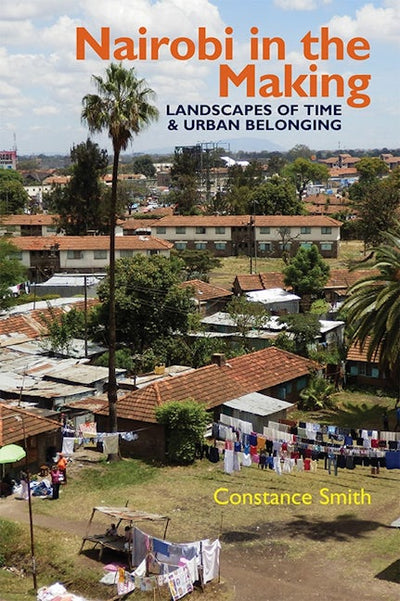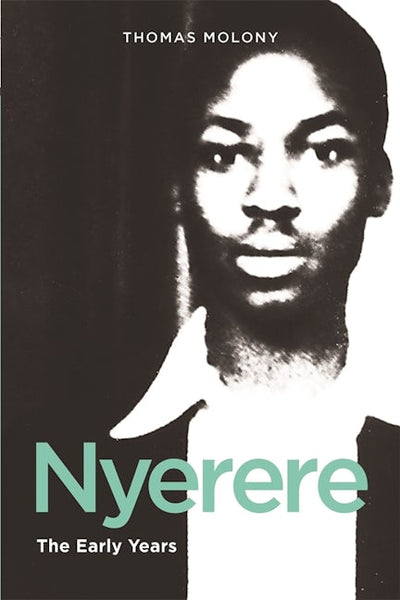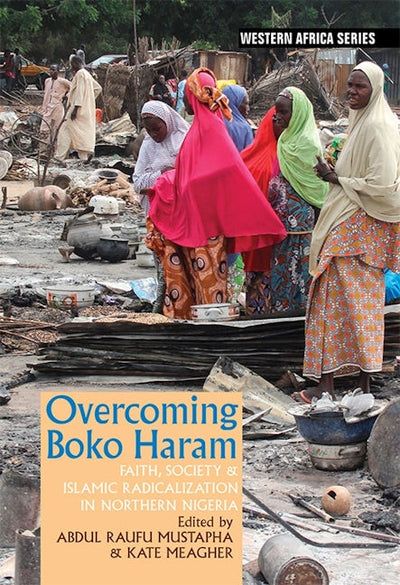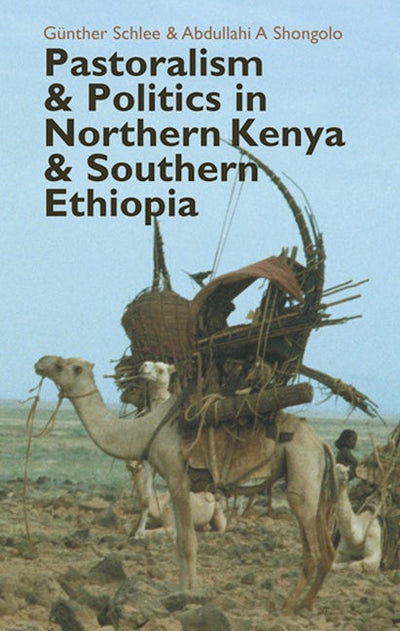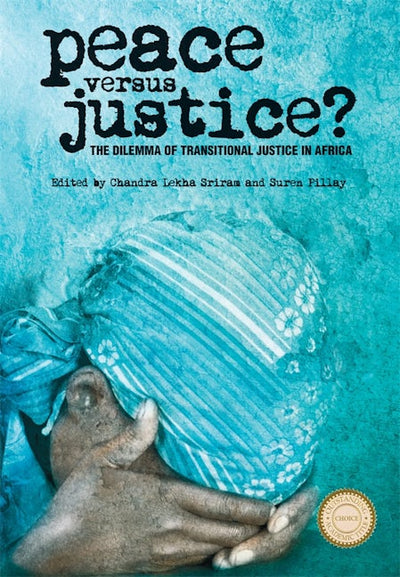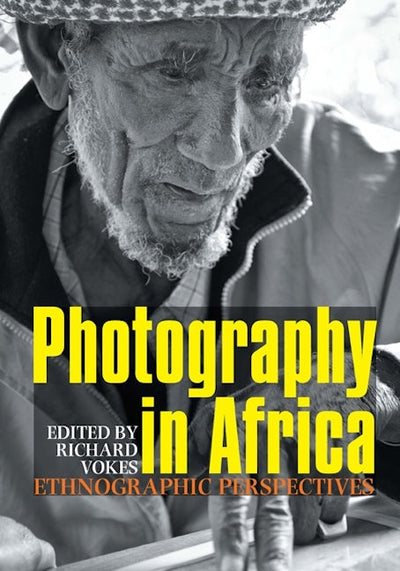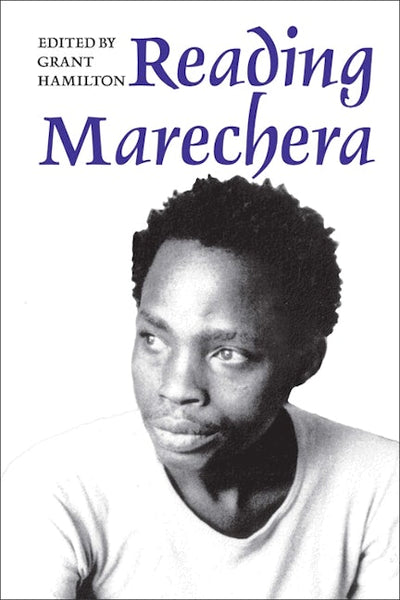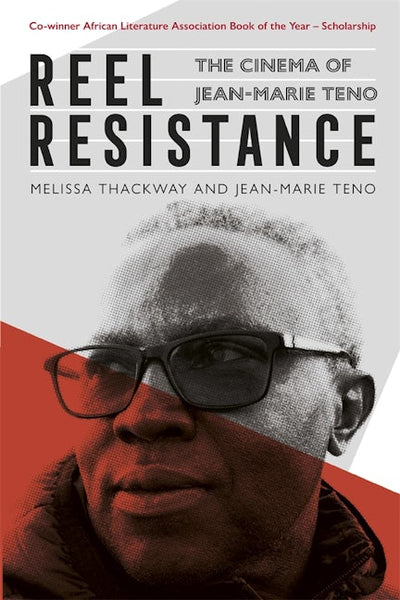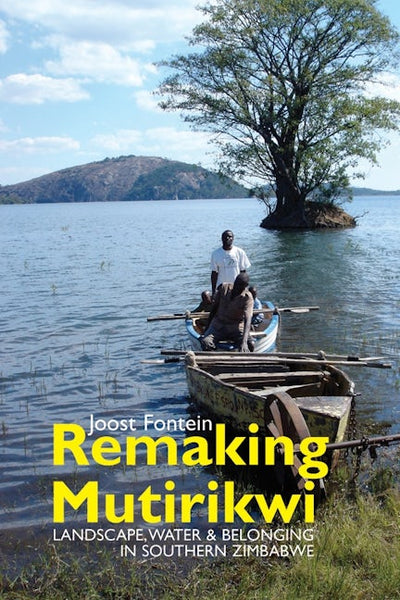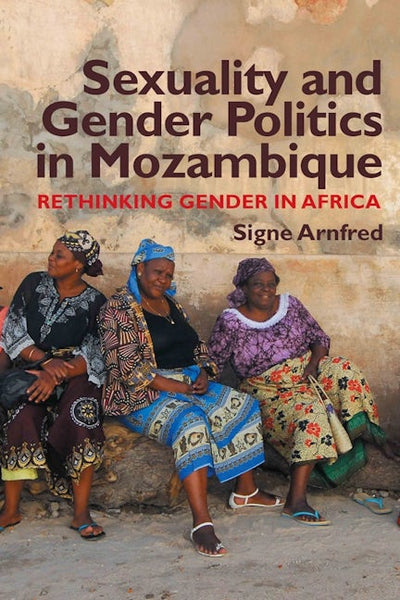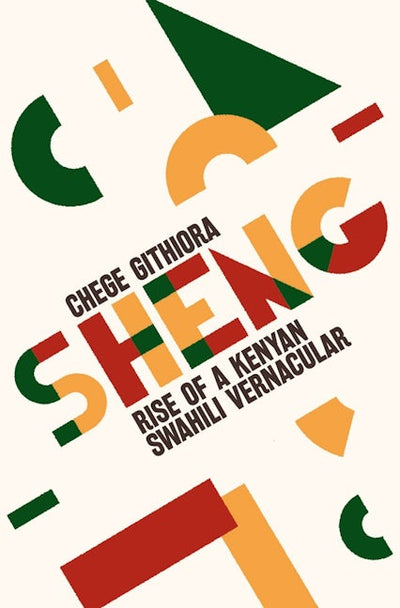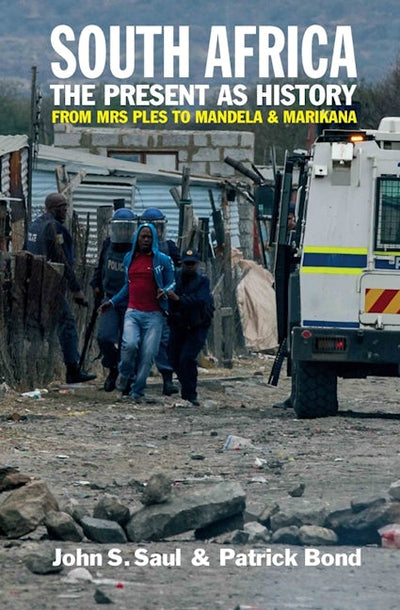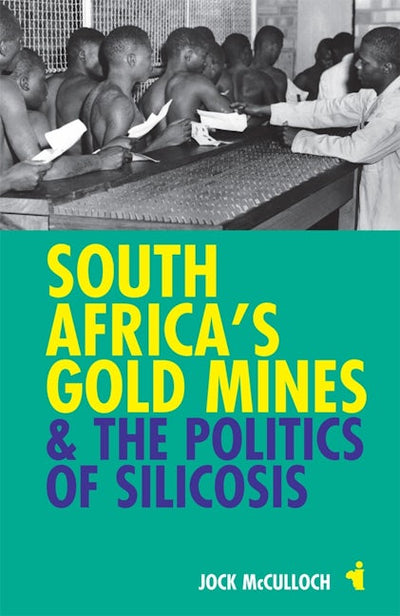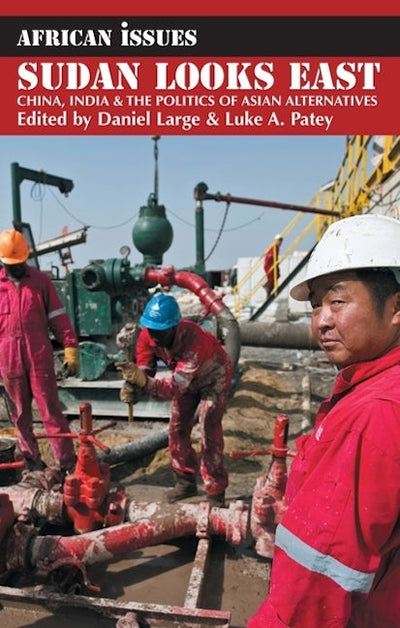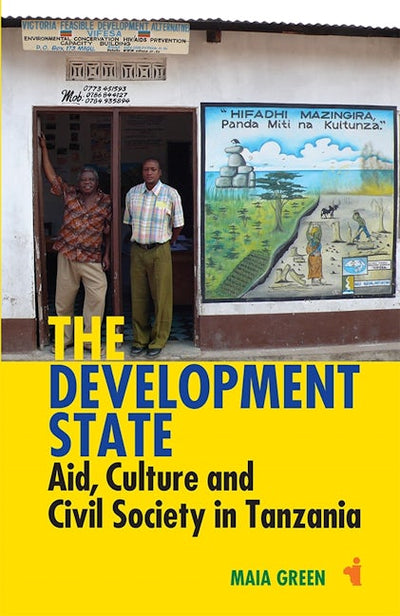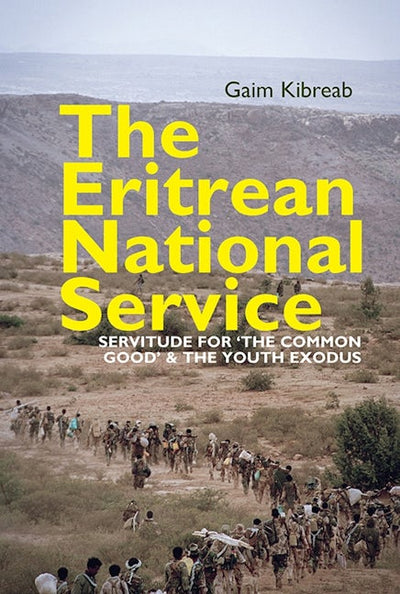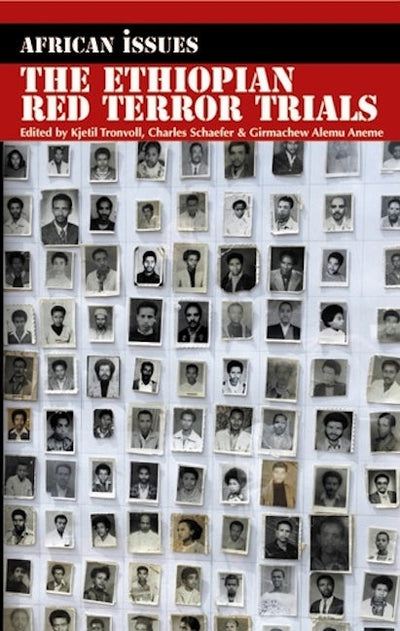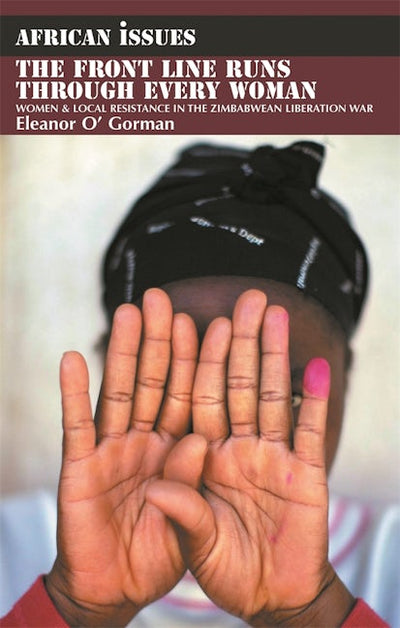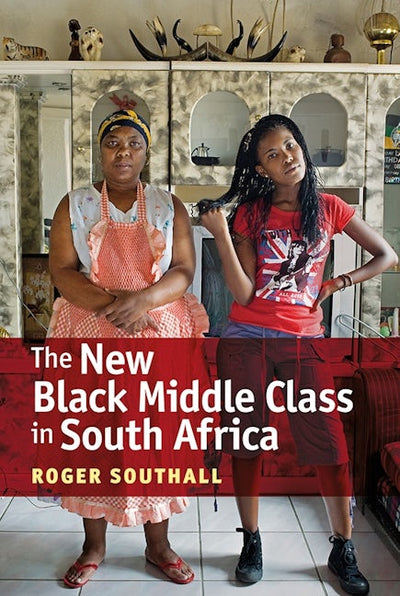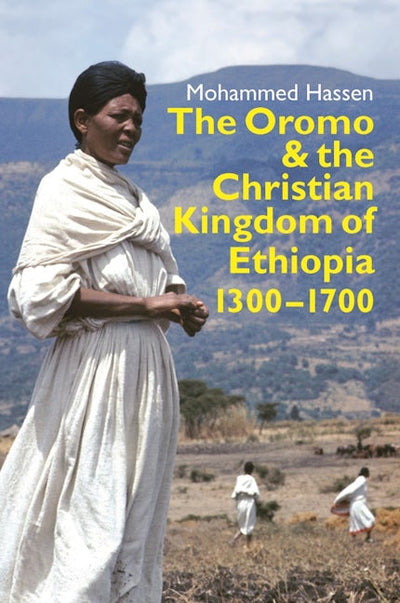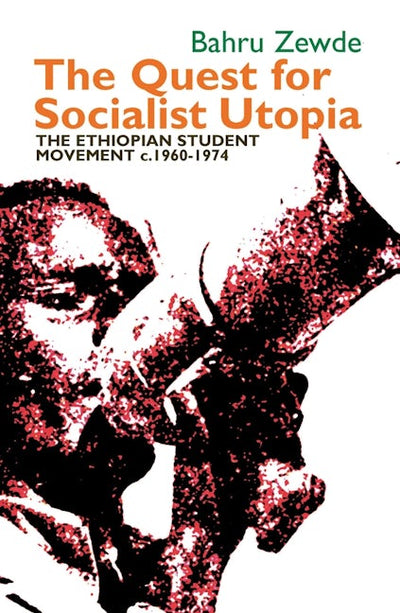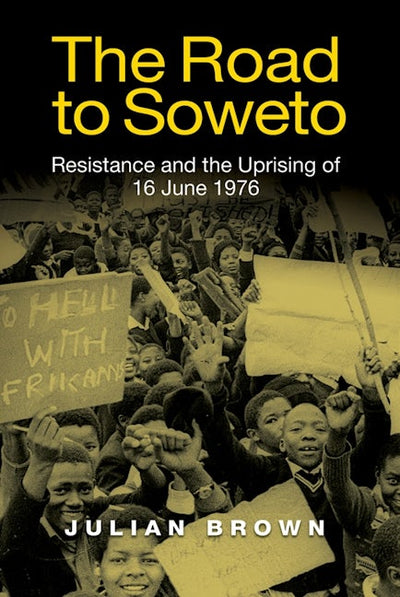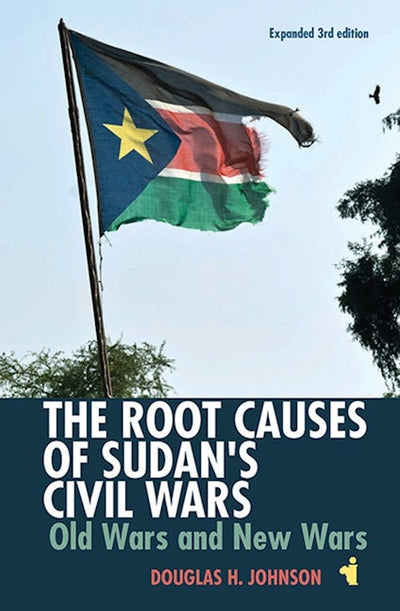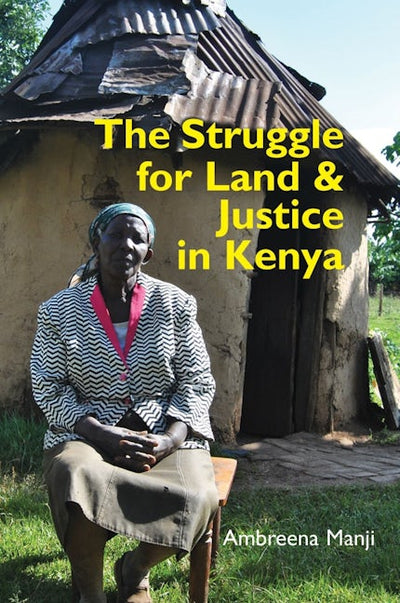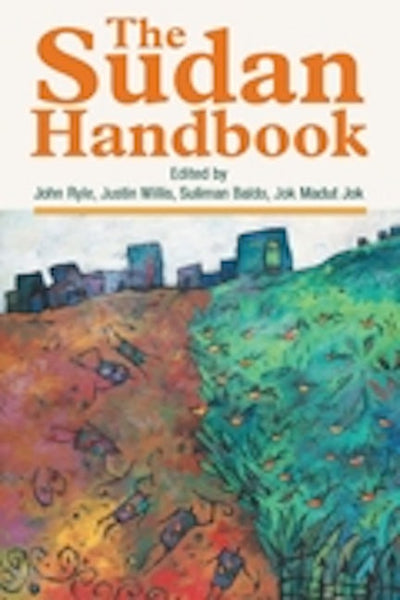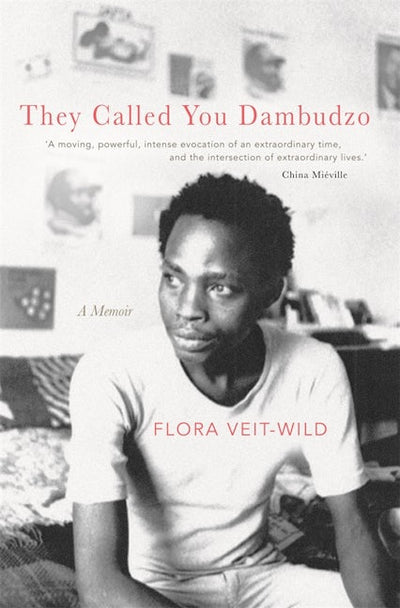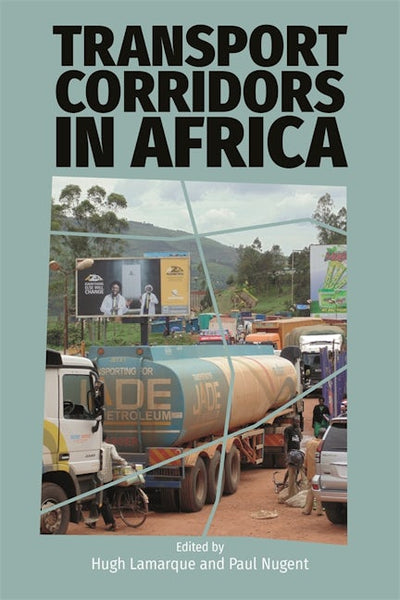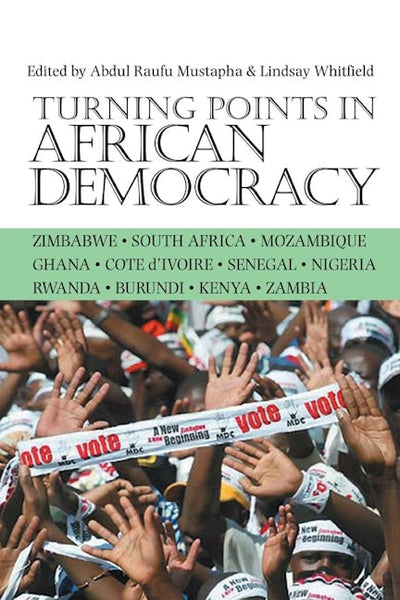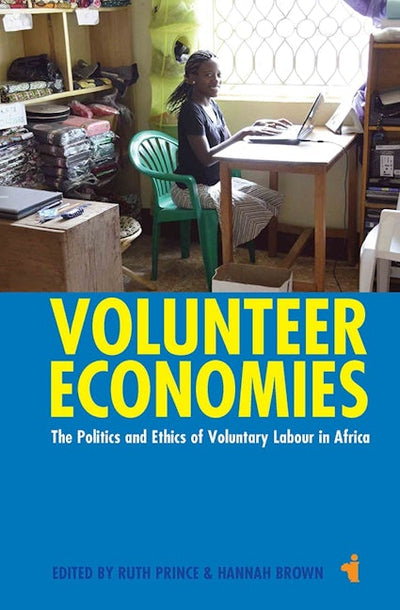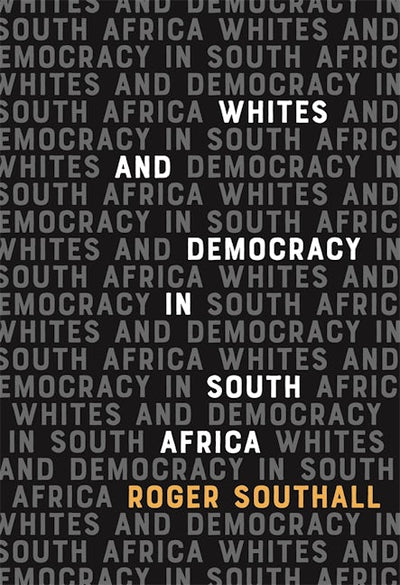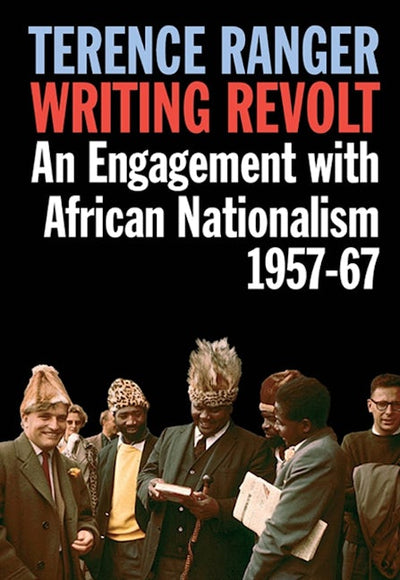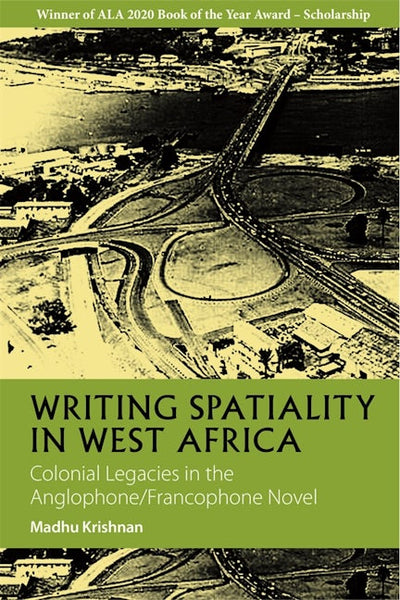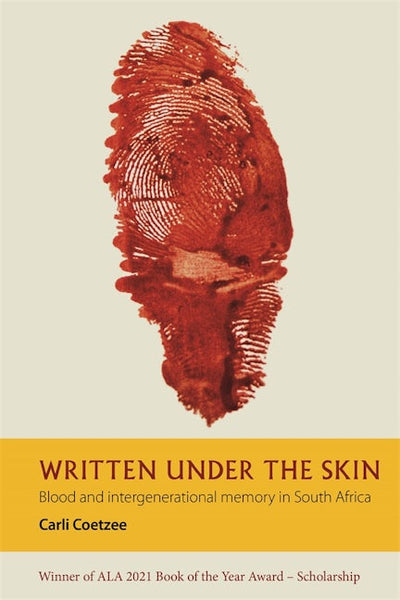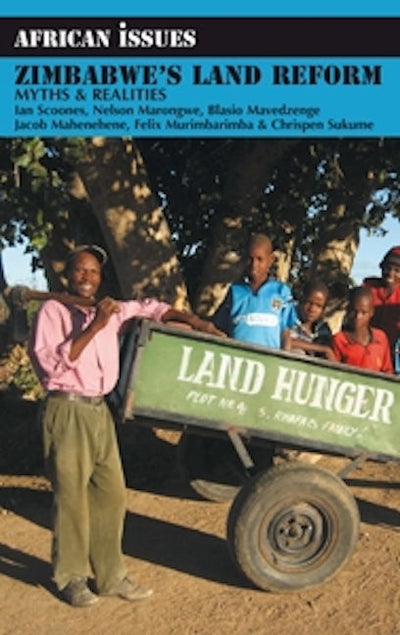-
Antiques & Collectibles
-
Architecture
-
Art
-
Bibles
-
Biography & Autobiography
-
Body, Mind & Spirit
-
Business & Economics
-
Comics & Graphic Novels
-
Computers
-
Cooking
-
Crafts & Hobbies
-
Design
-
Education
-
Family & Relationship
-
Fiction
-
Foreign Language Study
-
Games & Activities
-
Gardening
-
Health & Fitness
-
History
-
House & Home
-
Humor
-
Juvenile Fiction
-
Juvenile Nonfiction
-
Language Arts & Disciplines
-
Law
-
Literary Collections
-
Literary Criticism
-
Mathematics
-
Medical
-
Miscellaneous
-
Music
-
Nature
-
Performing Arts
-
Pets
-
Philosophy
-
Photography
-
Poetry
-
Political Science
-
Psychology
-
Reference
-
Religion
-
Self-Help
-
Science
-
Social Science
-
Sports & Recreation
-
Study Aids
-
Technology & Engineering
-
Transportation
-
Travel
-
True Crime
-
Young Adult Fiction
-
Young Adult Nonfiction
-
Antiques & Collectibles
-
Architecture
-
Art
-
Bibles
-
Biography & Autobiography
-
Body, Mind & Spirit
-
Business & Economics
-
Comics & Graphic Novels
-
Computers
-
Cooking
-
Crafts & Hobbies
-
Design
-
Education
-
Family & Relationship
-
Fiction
-
Foreign Language Study
-
Games & Activities
-
Gardening
-
Health & Fitness
-
History
-
House & Home
-
Humor
-
Juvenile Fiction
-
Juvenile Nonfiction
-
Language Arts & Disciplines
-
Law
-
Literary Collections
-
Literary Criticism
-
Mathematics
-
Medical
-
Miscellaneous
-
Music
-
Nature
-
Performing Arts
-
Pets
-
Philosophy
-
Photography
-
Poetry
-
Political Science
-
Psychology
-
Reference
-
Religion
-
Self-Help
-
Science
-
Social Science
-
Sports & Recreation
-
Study Aids
-
Technology & Engineering
-
Transportation
-
Travel
-
True Crime
-
Young Adult Fiction
-
Young Adult Nonfiction
Labour & Christianity in the Mission
Regular price $29.99 Save $-29.99The important role missions played as places of work has been underexplored, yet missionaries were some of the earliest Europeans who tried to control African labour. African mission workers' roles were not just religious and educational, as they were actively involved, not always voluntarily, in building and domestic work. Focusing on the Anglican Universities' Mission to Central Africa (UMCA) in Tanganyika and Zanzibar in the late 19th and early 20th centuries, Michelle Liebst shows how missionaries both supported and undermined the livelihood trajectories of Africans. Revealing the changing nature of relations over time between missionaries - who referred to themselves as "workers" - and the African mission workers, including teachers and priests - whom missionaries referred to as "helpers" - reflected broader political transformations, and this innovative study of missions' role in society adds a critical dimension to our understanding of their function and socio-economic impact and the history of Christianity in Africa.

Land, Investment & Politics
Regular price $29.99 Save $-29.99More than ever before, the gaze of global investment has been directed to the drylands of Africa, but what does this mean for these regions' pastoralists and other livestock-keepers and their livelihoods? Will those who have occupied drylands over generations benefit from the developments, as claimed, or is this a new type of territorialisation, exacerbating social inequality?
This book's detailed local studies of investments at various stages of development - from Kenya, Tanzania, Somaliland, Ethiopia - explore, for the first time, how large land, resource and infrastructure projects shape local politics and livelihoods. Land and resources use, based on ancestral precedenceand communal practices, and embedded regional systems of trade, are unique to these areas, yet these lands are now seen as the new frontier for development of national wealth. By examining the ways in which large-scale investmentsenmesh with local political and social relations, the chapters show how even the most elaborate plans of financiers, contractors and national governments come unstuck and are re-made in the guise of not only states' grand modernist visions, but also those of herders and small-town entrepreneurs in the pastoral drylands. The contributors also demonstrate how and why large-scale investments have advanced in a more piecemeal way as the challenges of implementation have mounted.
JEREMY LIND is Research Fellow at the Institute of Development Studies (IDS), University of Sussex. DORIS OKENWA holds a PhD in Anthropology from the London School of Economics. IAN SCOONES is a Professorial Fellow at the IDS, University of Sussex and co-director of the ESRC STEPS Centre.

Liberalizing Tanzania's Food Trade
Regular price $36.95 Save $-36.95The author shows the way grain traders and households in five Tanzanian towns were affected by the Tanzanian government's decision to opt for liberalization in the trade of two staple food crops: rice and maize.

Liberation Movements in Power
Regular price $45.95 Save $-45.95The liberation movements of Southern Africa arose to combat racism, colonialism and settler capitalism and engaged in armed struggle to establish democracy. After victory over colonial and white minority regimes, they moved into government embodying the hopes and aspirations of their mass of supporters and of widespread international solidarity movements. Even with the difficult legacies they inherited, their performance in power has been deeply disappointing. Roger Southall tracks the experiences in government of ZANU-PF, SWAPO and the ANC, arguing that such movements are characterised by paradoxical qualities, both emancipatory and authoritarian. Analysis is offered of their evolution into political machines through comparative review of their electoral performance, their relation to state and society, their policies regarding economic transformation, and their evolution as vehicles of class formation andpredatory behaviour. The author concludes that, while they will survive organizationally, their essence as progressive forces is dying, and that hopes of a genuine liberation throughout the region will depend upon political realignments alongside moral and intellectual regeneration.
ANC South Africa
SWAPO Namibia
Zanu-PF Zimbabwe
Roger Southall is Professor Emeritus in Sociology, University of the Witwatersrand and a Research Associate of the Society, Work and Development Institute.

Lie of the Land
Regular price $29.99 Save $-29.99This book addresses the issue of how environmental orthodoxies become established, and what the alternative and appropriate approaches for policy-making are. It shows that many of the established orthodoxies are ill-conceived or represent the interests of certain powerful groups.
The editors draw together material from 11 key case studies across the continent which use first hand research in different ecological zones.
Melissa Leach & RobinMearns are Fellows at the Institute of Development Studies (IDS), University of Sussex
Published in association with the International African Institute

Losing your Land
Regular price $29.99 Save $-29.99Dispossession of land on a small scale can have as great an impact on living conditions as large-scale land-grabs. With the increasing commodification of land, new forms of dispossession, in urban as well as rural districts, are also gaining in importance.
This book looks at this largely uninvestigated issue through case studies in the Eastern DRC, Rwanda, Burundi and Uganda: here the loss of land often represents the loss of people's livelihoods inthese areas of extreme land scarcity in highly populated regions. In the post-conflict states of the Great Lakes, governance challenges increase the risk of dispossession of the already poor and vulnerable: formal institutions are weak or biased; customary authorities have lost some of their moral authority. The cases in this book show in particular how local power dynamics, often rooted in history, bear upon the processes of land competition, dispossession and land grabbing. This timely volume will be important not only for those in African Studies, but for those in development studies, as well as practitioners and policy-makers worldwide.
An Ansoms is assistant professor in development studies at the Université Catholique de Louvain (Belgium); Thea Hilhorst is a senior advisor at the Royal Tropical Institute in Amsterdam.

Lost Nationalism
Regular price $36.95 Save $-36.95A lively account of the 1924 Revolution in Sudan and the way in which the colonial situation has affected its representation, a case in point inthe histories of nationalist anti-colonial movements in Africa and the Middle East.
Winner of the African Studies Association 2016 Bethwell A. Ogot Book Prize
The 1924 Revolution was a watershed in Sudanese history, the first episode of anti-colonial resistance in which a nationalist ideology was explicitly used, and part of a global wave of anti-colonial movements after the First World War that can be seen as the "spring of the colonial nations".
This detailed account of the uprising, and its eventual failure, explores the cosmopolitan nationalism embraced by the White Flag League, the movement that sparked the revolution, and its ability to attract people from diverse origins, classes and professions. It examines the international genesisof the movement; the strategies put in place to spread it in different areas of Sudan and among different groups; the movement's inclusive ideology and its definition of the Sudanese nation, as well as the limitations to its inclusiveness; and the way in which this episode reveals deeper questions relating to origins, social hierarchies and power. The book also unravels the complex history of the memory of 1924, the politics of its representation and the underlying power struggles that saw 1924 largely lost from the historical record.
Elena Vezzadini is a historian of modern Sudan affiliated to the CNRS, Institut des Mondes Africains, Paris.

Mandela's Kinsmen
Regular price $29.99 Save $-29.99At a time of increasing regional fractures within the African National Congress, Mandela's Kinsmen provides a timely study of South Africa's nationalist elite. Whilst mass protests against apartheid were forged in the crucible of township and trade union politics, Gibbs focuses on Mandela's fraught relationships to his kinsmen inside apartheid's foremost "tribal" Bantustan, the Transkei. He uncovers the enduring connections between the nationalist elites and the chieftaincy areas, and argues the enduring institutional legacies of the Bantustans continue to shape post-apartheid South Africa.
Timothy Gibbs is a Lecturer in African History, University College London.
Southern Africa (South Africa, Namibia, Lesotho, Swaziland & Botswana): Jacana

Manufacturing Africa
Regular price $49.95 Save $-49.95Concentrates on the seven countries which between them (excluding South Africa) account for 60 per cent of total manufacturing in sub-Saharan Africa. The contributors look at the role of manufacturing and industry in the development of these countries, arguing that future prosperity could be enhanced by a three-pronged approach to industrialisation.
Published in association with the ODI

Marikana
Regular price $36.95 Save $-36.95In August 2012 the South African police - at the encouragement of mining capital, and with the support of the political state - intervened to end a week-long strike at the Lonmin platinum mine in Marikana, in South Africa's NorthWest Province. On the afternoon of Thursday, 16 August, the police shot and killed 34 men. Hundreds more were injured, some shot as they fled. None posed a threat to any police officer. Recognised by many as an event of international significance in stories of global politics and labour relations, the perspectives of the miners has however been almost missing from published accounts. This book, for the first time, brings into focus the mens' lives - and deaths - telling the stories of those who embarked on the strike, those who were killed, and of the family members who have survived to fight for the memories of their loved ones. It places the strike in the context of South Africa's long history of racial and economic exclusion, explaining how the miners came to be in Marikana, how their lives were ordinarily lived, and the substance of their complaints. It shows how the strike developed from an initial gathering into a mass movement of more than 3,000 workers. It discusses the violence of the strike and explores the political context of the state's response, and the eagerness of the police to collaborate in suppressing the strike. Recounting the events of the massacre in unprecedented detail, the book sets out how each miner died and everything we know about the police operation. Finally, Brown traces the aftermath: the attempts of the families of the deceased to identify and bury their dead, and then the state's attempts to spin a narrative that placed all blame on the miners; the subsequent Commission of Inquiry - and its failure to resolve any real issues; and the solidarity politics that have emerged since.
Southern Africa (South Africa, Namibia, Lesotho, Swaziland and Botswana): Jacana.

Masquerades in African Society
Regular price $39.95 Save $-39.95What is the meaning of masks and masquerades in African traditions and how can we understand their role in rituals and performances? Why do we find masks in some African regions and not in others, and what does this 'mask habitat' say about the general dynamics of masquerades in Africa? Though masks are among the most famous art icons of Africa, exploration of their uses and the way in which they articulate social characteristics of African societies has been underexamined. This book takes an anthropological perspective on the phenomenon of masquerades on the African continent to show how mask rituals are an integral part of African indigenous religions and societies, and are informed by and linked to specific types of social and ecological conditions. Having established the commonalities of mask rituals and a mask typology, the authors look at the varieties of mask performances and the types of rituals in which masks function in rites of passage and in rituals of gender, power, and identity. The following chapters focus on different types of rituals featuring masks, from initiation and death ceremonies to secrecy, kingship, law and war. With its broad examination of the use of masks on the continent, from Angola to Burkina Faso, Cameroon, DRC, Guinea, Ivory Coast, Liberia, Mali, Nigeria, Senegal, this well illustrated book will stand as an authoritative study of the use of masks, of interest not only to those in African Studies but to anthropologists and ethnographers worldwide.

Melodies of Mourning
Regular price $36.95 Save $-36.95Invites the reader to rethink the place of ecology in music and emotion, and how emotions transcend cultural difference. It shows how sounds and the senses shape feelings for the land and seascape, exploring these themes in relation to Yolngu of north east Arnhem Land in Northern Australia.
This rich ethnographic study makes a distinctive contribution to the tradition of anthropological analysis which focuses on the located nature of human sensual experience.
FIONA MAGOWAN is a lecturer in Anthropology at Queen's University, Belfast
Series editors: Wendy James and N. J. Allen
Australia: University of Western Australia Press

Migrants and Masculinity in High-Rise Nairobi
Regular price $29.99 Save $-29.99Pipeline is a low-income, high-rise-tenement settlement in Nairobi's marginalized East and one of sub-Saharan Africa's most densely populated estates. An aspirational place where fleeting forms of capitalist consumption reassure migrants of an upward trajectory, it is also a place where their ambitions of long-term economic success and stable romantic relationships are routinely thwarted. This book explores how men who migrate to Nairobi from Western Kenya navigate this tension that is generated by the contrast between their view of Pipeline as a launching pad for their personal and professional careers and the fact that they face constant economic, romantic, and personal backlashes.
Drawing on over two years of fieldwork, the book reveals that many male migrants design their future on trajectories of personal and economic growth but have to adjust or indefinitely postpone their plans once they arrive in Kenya's capital. Under the pressure to succeed from romantic partners, spouses, rural kin, and children, they create and participate in homosocial spaces where a sense of brotherhood emerges and their experience of pressure is attenuated. Alongside a deep ethnographic exploration of how male migrants model their financial, physical, and mental well-being in three different masculine spaces - an ethnically homogenous investment group, an interethnic gym, and the semi-digital sphere of self-help books, workshops, and motivational trainings on man- and fatherhood - this book brings a new perspective to our understanding of urban African life and the nature of masculinity.
This title is available under the Creative Commons license CC BY-NC-ND, with funding from the Max Planck Institute for Social Anthropology Open Access Fund and the German Research Foundation.

Mountain Farmers
Regular price $36.95 Save $-36.95This work examines the struggle between the Meru and Arusha peoples and their German and British rulers over the issue of land and agricultural development on Mount Meru in northern Tanzania. It shows how the Meru and Arashi, faced with an iron ring of land alienated by European settlers successfully intensified their own irrigated agriculture to bring about what has been termed an indigenous agricultural revolution.
Tanzania: Mkuki na Nyota

Moving the Centre
Regular price $29.99 Save $-29.99In this collection Ngugi is concerned with moving the centre in two senses - between nations and within nations - in order to contribute to the freeing of world cultures from the restrictive walls of nationalism, class, race and gender
Between nations the need is to move the centre from its assumed location in the West to a multiplicity of spheres in all the cultures of the world. Within nations the move should be away from all minority class establishments to the real creative centre among working people in conditions of racial, religious and gender equality.
Kenya: EAEP

Nairobi in the Making
Regular price $29.99 Save $-29.99What does it mean to make a life in an African city today? How do ordinary Africans, surrounded by collapsing urban infrastructures and amid fantastical promises of hypermodern, globalised futures, try to ensure a place for themselves in the city's future? Exploring the relationship between the remains of empire and the global city, and themes of urban belonging and exclusion, housing and security, Constance Smith examines the making and remaking of one ofAfrica's most fragmented, vibrant cities.
Nairobi is on the cusp of radical urban change. As in other capital cities across Africa, the Kenyan government has launched "Vision 2030", an urban megaproject that envisions the capital as a "world class metropolis", a spectacular new node in a network of global cities. Yet as a city born of British colonialism, Nairobians also live amongst the dilapidated vestiges of imperial urban planning; spaces designed to regulate urban subjects. Based on extensive ethnographic research in a dilapidated, colonial-era public housing project built as a model urban neighbourhood but which is now slated for demolition, Smith explores how projects of self-making and city-making are entwined. She traces how it is through residents' everyday lives - in the mundane, incremental work of home maintenance, in the accumulation of stories about the past, in ordinary people's aspirations for the future - that urban landscapes are formed, imaginatively, materially and unpredictably, across time. Nairobi emerges as a place of pathways and plans, obstructions and aspirations, residues and endurances, thatinflect the way that ordinary people produce the city, generating practices of historymaking, ideas about urban belonging and attempts to refashion "Vision 2030" into a future more meaningful and inclusive to ordinary city dwellers.
Published in association with the British Institute in Eastern Africa.
Kenya, Uganda, Tanzania,Rwanda: Twaweza Communications

Namib
Regular price $64.95 Save $-64.95The first full-length examination of the archaeology and history of the Namib Desert.
This is a story of human survival over the last one million years in the Namib Desert - one of the most hostile environments on Earth. Namib reveals the resilience and ingenuity of desert communities and provides a vivid picture of our species' response to climate change, and ancient strategies to counter ever-present risk. Dusty fragments of stone, pottery and bone tell a history of perpetual transition, of shifting and temporary states of balance. Namib digs beneath the usual evidence of archaeology to uncover a world of arcane rituals, of travelling rain-makers, of intricate social networks which maintained vital systems of negotiated access to scarce resources. Ranging from the earliest evidence of human occupation, through colonial rule and genocide, to the invasion of the desert by South African troops during the First World War, this is the first comprehensive archaeology of the Namib. Among its important contributions are the reclaiming of the indigenous perspective during the brutal colonial occupation, and establishing new material links between the imperialist project in German South West Africa during 1885-1915 and the Third Reich, and between Nazi ideology and Apartheid.
Southern Africa: University of Namibia Press/Jacana

Newsprint Literature and Local Literary Creativity in West Africa, 1900s – 1960s
Regular price $36.95 Save $-36.95From their inception in the 1880s, African-owned newspapers in 'British West Africa' carried an abundance of creative writing by local authors, largely in English. Yet to date this rich and vast array of work has largely been ignored in critical discussion of African literature and cultural history. This book, for the first time, explores this under-studied archive of ephemeral writing - from serialised fiction to poetry and short stories, philosophical essays, articles on local history, travelogues and reviews, and letters - and argues for its inclusion in literary genres and anglophone world literatures. Combining in-depth case studies of creative writing in the Ghana and Nigeria press with a major reappraisal of the Nigerian pamphlets known as 'Onitsha market literature', and focusing on non-elite authors, the author examines hitherto neglected genres, styles, languages, and, crucially, readerships. She shows how local print cultures permeated African literary production, charting changes in literary tastes and transformations to genres and styles, as they absorbed elements of globally circulating English texts into formats for local consumption. Offering fresh trajectories for thinking about local and transnational African literary networks while remaining attuned to local textual cultures in contexts of colonial power relations, anticolonial nationalism, the Cold War and global circuits of cultural exchange, this important book reveals new insights into ephemeral literature as significant sites of literary production, and contributes to filling a gap in scholarship on colonial West Africa.
Winner: 2024 Gustav Ranis International Book Prize

Ngugi
Regular price $36.95 Save $-36.95This collection of essays reflects on the life and work of Ngugi wa Thiong'o, who celebrated his 80th birthday in 2018. Drawing from a wide range of contributors, including writers, critics, publishers and activists, the volume traces the emergence of Ngugi as a novelist in the early 1960s, his contribution to the African culture of letters at its moment of inception, and his global artistic life in the twenty-first century. Here we have both personal andcritical reflections on the different phases of the writer's life: there are poems from friends and admirers, commentaries from his co-workers in public theatre in Kenya in the 1970s and 1980s, and from his political associates in the fight for democracy, and contributions on his role as an intellectual of decolonization, as well as his experiences in the global art world. Included also are essays on Ngugi's role outside the academy, in the world of education, community theatre, and activism. In addition to tributes from other authors who were influenced by Ngugi, the collection contains hitherto unknown materials that are appearing in English for the first time. Both a celebration of the writer, and a rethinking of his legacy, this book brings together three generations of Ngugi readers. We have memories and recollections from the people he worked with closely in the 1960s, the students that he taught atthe University of Nairobi in the 1970s, his political associates during his exile in the 1980s, and the people who worked with him as he embarked on a new life and career in the United States in the 1990s. First-hand accounts reveal how Ngugi's life and work have intersected, and the multiple forces that have converged to make him one of the greatest writers to come out of Africa in the twentieth century.
Simon Gikandi is Robert Schirmer Professor of English, Princeton University. He is President of the MLA and was editor of its journal PMLA, from 2011-2016.
Ndirangu Wachanga is Professor of Media Studies and Information Science at the University of Wisconsin. He is also the authorized documentary biographer of Professors Ali A. Mazrui, Ngugi wa Thiong'o and Micere Mugo.

Ngugi wa Thiong'o
Regular price $36.95 Save $-36.95This interpretation of the work of Ngugi wa Thiong'o discusses his philosophy, writing style, social and political focus, and ultimate vision and aspirations. Each work of fiction is examined in depth, and there is an evaluation of Ngugi's standing as a writer and social figure. Separate chapters cover each of Ngugi's novels, from The River Between and Weep Not, Child to Matigari , as well as his drama and short stories. There is alsoan examination of his social commentaries in the popular press, to which the early formation of his ideological position can be traced.
Kenya: EAEP

Nyerere
Regular price $36.95 Save $-36.95Julius Kambarage Nyerere (1922-1999), the first President of Tanzania, was a man whose political life was uniquely and inextricably bound into the history of the nation he created. This book presents the first truly rounded portrait of Nyerere's early life, from his birth in 1922 until his graduation from Edinburgh in 1952, enabling us to see his later political achievements in a new light. It was after returning to Tanganyika that "Mwalimu" (the teacher)formally entered politics, and led efforts to deliver Tanganyika to independence. Drawing on interviews with his contemporaries and archival sources including his letters as a student and colonial authorities files on him, this biography brings a new perspective on how the scholarship that Nyerere engaged with as a young man influenced his ideas of the uhuru movement against colonial rule and, later, the ujamaa policy of African socialism that so defined his leadership of an independent Tanzania.
Thomas Molony is Senior Lecturer in African Studies at the University of Edinburgh.

Overcoming Boko Haram
Regular price $39.95 Save $-39.95It is now more than a decade since the violent Islamic group Boko Haram launched its reign of terror across northern Nigeria, claiming more than 27,000 lives and displacing over 2 million people. While its territorial gains have largely been recaptured, the insurgency rages on, devastating communities across vast stretches of the north-east and disrupting governance, livelihoods and food security, as well as posing a security risk to Niger, Chad and Cameroon.
Less attention is paid to the pervasive popular rejection of violent extremism on the ground. How did a diverse and economically dynamic West African society unravel so violently, and for so long? Why does radicalizationhave so little influence on large Muslim populations in surrounding areas, such as the Yoruba in south-western Nigeria, or the poor ethnically similar Muslim majority in central Niger just north of the border? This book looks beyond the details of the insurgency to examine the wider social and political processes that explain why Boko Haram emerged when and where it did, and what forces exist within society to contain it. Drawing on the detailed fieldworkof specialist Nigerian and Nigerianist scholars from Nigeria, connecting the worst of Boko Haram violence to the wider realities of the present, the book offers new insights into the drivers of Islamic extremism in Nigeria - poverty, regional inequality, environmental stress, migration, youth unemployment, and state corruption and human rights abuses - with a view to charting more sustainable paths out of the conflict.
Nigeria: Premium Times Books

Pastoralism and Politics in Northern Kenya and Southern Ethiopia
Regular price $29.99 Save $-29.99This study, based on anthropological field research over a period of thirty-four years, focuses on pastoralism, politics, policies and development in northern Kenya and southern Ethiopia. The authors present a detailed ethnographic view of recent events of ethnic violence in Kenya and analyse how local patterns of conflict among pastoralists were influenced by both national and regional politics, which have encouraged an increased tendency of territorialized ethnicity. They propose ways of getting out of the ethnic trap and revitalizing a mobile livestock economy in a region where other forms of land use are impossible or much less effective.
A companion volume to Islam andEthnicity in Northern Kenya and Southern Ethiopia, it will be of particular interest to political anthropologists, students of nomadism, pastoral economy ecology, and globalization.
Günther Schlee is director of the Department of 'Integration and Conflict', Max Planck Institute for Social Anthropology, Halle, Germany; Abdullahi Shongolo is an independent scholar based in Kenya.

Patrick Duncan
Regular price $39.95 Save $-39.95Born son of a Governor-General of South Africa, Patrick Duncan rejected the attitudes of his privileged background to follow the Gandhian way of passive reistance, even to jail. This biography traces the life and times of Duncan and the changes and struggles in late-twentieth century South Africa.

Peace versus Justice?
Regular price $45.95 Save $-45.95WINNER: 2011 CHOICE Outstanding Academic Title Award
The chapters in this volume consider a wide range of approaches to accountability and peacebuilding. These include not only domestic courts and tribunals, hybrid tribunals, or the International Criminal Court, but also truth commissions and informal or non-state justice and conflict resolution processes. Taken together, they demonstrate the wealth of experiences and experimentation in transitional justice processes on the continent.
CHANDRA LEKHA SRIRAM is Professor of Human Rights at the School of Law, University of East London, United Kingdom. She is also the Chair of the International Studies Association Human Rights Section and consults on issues of governance and conflict prevention for the United Nations Development Programme.
SUREN PILLAY is a Senior Lecturer in the Department of Political Studies at the University of the Western Cape, South Africa, and a Senior Research Specialistin the Democracy and Governance programme of the Human Sciences Research Council.
Southern Africa (South Africa, Botswana, Lesotho, Swaziland, Botswana & Namibia): University of KwaZulu-Natal Press

Peacemaking and Peacebuilding in South Africa
Regular price $36.95 Save $-36.95It is now 30 years since the National Peace Accord (NPA) was signed in South Africa, bringing to an end the violent struggle of the Apartheid era and signalling the transition to democracy. Signed by the ANC Alliance, the Government, the Inkatha Freedom Party and a wide range of other political and labour organizations on 14 September 1991, the parties agreed in the NPA on the common goal of a united, non-racial democratic South Africa, and provided practical means for moving towards this end: codes of conduct for political organizations and for the police, the creation of national, regional and local peace structures for conflict resolution, the investigation and prevention of violence, peace monitoring, socio-economic reconstruction and peacebuilding.
This book, written by one of those involved in the process that evolved, provides for the first time an assessment and in-depth account of this key phase of South Africa's history. The National Peace Campaign set up under the NPA mobilized the 'silent majority' and gave peace an unprecedented grassroots identity and legitimacy. The author describes the formulation of the NPA by political representatives, with Church and business facilitators, which ended the political impasse, constituted South Africa's first experience of multi-party negotiations, and made it possible for the constitutional talks (Codesa) to start. She examines the work of the Goldstone Commission, which prefigured the TRC, as well as the role of international observers from the UN, EU, Commonwealth and OAU. Exploring the work of the peace structures set up to implement the Accord - the National Peace Committee and Secretariat, the 11 Regional Peace Committees and 263 Local Peace Committees, and over 18,000 peace monitors - Carmichael provides a uniquely detailed assessment of the NPA, the on-the-ground peacebuilding work and the essential involvement of the people at its heart. Filling a significant gap in modern history, this book will be essential reading for scholars, students and others interested in South Africa's post-Apartheid history, as well as government agencies and NGOs involved in peacemaking globally.

Photography in Africa
Regular price $36.95 Save $-36.95This collection of studies in African photography examines, through a series of empirically rich historical and ethnographic cases, the variety of ways in which photographs are produced, circulated, and engaged across a range of social contexts. In so doing, it elucidates the distinctive characteristics of African photographic practices and cultures, vis-à-vis those of other forms of 'vernacular photography' worldwide. In addition, these studies develop areflexive turn, examining the history of academic engagement with these African photographic cultures, and reflecting on the distinctive qualities of the ethnographic method as a means for studying such phenomena.
The volumecritically engages current debates in African photography and visual anthropology. First, it extends our understanding of the variety of ways in which both colonial and post-colonial states in Africa have used photography as a means for establishing, and projecting, their authority. Second, it moves discussion of African photography away from an exclusive focus on the role of the 'the studio' and looks at the circulations through which the studios' products - the photographs themselves - later pass as artefacts of material culture. Last, it makes an important contribution to our understanding of the relationship between photography and ethnographic research methods, as these have been employed in Africa.
RICHARD VOKES is Senior Lecturer in Anthropology and Development Studies at the University of Adelaide, Australia, and author of Ghosts of Kanungu

Pokot Pastoralism
Regular price $36.95 Save $-36.95In East Africa and beyond, pastoral groups find themselves and their livelihoods under increasing threat when dealing with rapid environmental change. On the one hand, they contemplate major upheaval as a result of landscape and climate change on a scale never seen before. At the same time, these often-marginalised groups find themselves subsumed by the wider interests of national political economies prioritising new investment in land as well as encouraging tourism. This book investigates one such group - the nomadic pastoralists in East Pokot in north-west Kenya - and traces their social and ecological transformation over the past two hundred years to show how modern challenges are linked to the past history and also shape the perceptions of pastoral futures.
In East Pokot the grass bush savannah upon which the pastoral lifestyle depends has strongly declined over a long period of time, with encroachment of acacia. Though traditionally cattle-rearing, its people have been forced to diversify into raising other browsing animals as well as cattle husbandry. The development efforts of the Kenyan government to use natural resources have also threatened their environment and their way of life. Bringing a long view to the history of human-environmental relations, the author reveals a more complex picture of change that, contrary to earlier assumptions, is not due exclusively to the pastoralists' pasture management, but also to the extinction of wildlife populations in the region, which were hunted heavily in colonial times. Attempts to move beyond Pokot territory, to the regions west of Lake Baringo and to the hard-fought Laikipia Plateau, have often been compromised by violent conflicts. While a younger generation looks to develop new sources of income through the job opportunities created by geothermal energy production, and diversify into other agricultural activities, this has also brought a dynamic social transformation: increasing production and sale of alcohol, decreasingly nomadic lifestyle, growing differences between the older and younger generations, and so on. Contributing to debates on future rural Africa, ecological history and environmental change, the book will appeal to anthropologists, sociologists, geographers, historians and development scholars.
Published in association with the Collaborative Research Centre FUTURE RURAL AFRICA, funded by the German Research Council (DFG).

Preserving the Cultural Heritage of Africa
Regular price $29.99 Save $-29.99The outflow of archaeological or artistic work from Africa, together with the ways of exhibiting African treasures outside Africa, are emerging as serious issues both in political and ethical terms. They are typified by a series of hot disputes concerning the legality of the exhibition of Nok terracotta pieces from Nigeria in the Louvre. Meanwhile in Africa, there has been an upsurge of active efforts by many ethnic groups - in Mali, Zimbabwe, Nigeria, South Africa and elsewhere - to create or re-create their own cultures by reviewing their cultural legacy. The book discusses the question: 'How should Africa's cultural heritage be preserved?' Scholars and museum professionals fromAfrica, Europe, America and Japan clarify the significance of 'Cultural Heritage' for African people in postcolonial Africa. They also explore how scholars and museum professionals outside Africa can support African colleagues inhanding down their cultural legacy to future generations.
Kenji Yoshida is Professor at the National Museum of Ethnology, Osaka, Japan; John Mack, formerly Keeper of Ethnography at the British Museum, is Professor of World Art at the University of East Anglia.
The contributors include: RUMI UMINO, GODFREY MAHACHI, TEREBA TOGOLA, GEORGE S. MUDENDA, JASPER MORGAN CHALCRAFT, NORIKO AIKAWA-FAURE, ANITRA NETTLETON, MOYO OKEDIJI, YUKIYA KAWAGUCHI, TETSUYA KAMEI, MARY NOOTER ROBERTS, SHOICHIRO TAKEZAWA and KIPROP LAGAT
South Africa: Unisa Press (PB)

Public and Private Universities in Kenya
Regular price $29.99 Save $-29.99The Partnership for Higher Education in Africa commissioned case studies of higher education provision in Tanzania, Uganda, Kenya, Mozambique, Nigeria, Ghana and South Africa, as part of its effort to stimulate enlightened, equitable, and knowledge-based national development, and to provide guides to understanding.
Reviews the history of higher education in Kenya and details the emergence of private universities, most of them with a Christian religious orientation, as major players in the provision of tertiary-level education.
In association with Partnership for Higher Education in Africa; Kenya: EAEP

Reading Chinua Achebe
Regular price $29.99 Save $-29.99Simon Gikandi has set out to reveal '...the very nature of [Achebe's] creativity, its prodigious complexity and richness...its paradoxes and ambiguities. This is scholarship of real stature and supersedes all other studies of Achebe's writing. It comes at a good time. Achebe's literary reputation is equal to that of any living author and a substantial critical canon has been established. - G.D. Killam, Professor of English, University of Guelph
Kenya: EAEP

Reading Marechera
Regular price $29.99 Save $-29.99Considered one of Africa's most innovative and subversive writers, the Zimbabwean novelist, poet, playwright and essayist Dambudzo Marechera is read today as a significant voice in contemporary world literature. Marechera wrote ceaselessly against the status quo, against unqualified ideas, against expectation. He was an intellectual outsider who found comfort only in the company of other free-thinking writers - Shelley, Bakhtin, Apuleius, Fanon, Dostoyevsky, Tutuola. It is this universe of literary thought that one can see written into the fiction of Marechera that this collection of essays sets out to interrogate.
In this important and timely contribution to African literarystudies, Grant Hamilton has gathered together essays of world-renowned, established, and young academics from Africa, Europe, Asia and Australia in order to discuss the important literary and philosophical influences that course through Marechera's prose, poetry and drama. From classical allusion to the political philosophy of anarchism, this collection of new research on Marechera's work makes clear the extraordinary breadth and quality of thought that Marechera brought to his writing.
Grant Hamilton is Assistant Professor of English Literature at the Chinese University of Hong Kong. He is the author of On Representation: Deleuze and Coetzee on the Colonized Subject (Rodopi, 2011), as well as a number of articles on contemporary African, postcolonial, and world literatures. He is currently working on his second book, Deleuze and African Literature.

Red Road to Freedom
Regular price $69.95 Save $-69.95Definitive and gripping narrative history of the Communist Party of South Africa.
Renowned historian Tom Lodge has written an immensely readable and compelling sweep of history, spanning continents and the last hundred years, producing the first comprehensive account of the South African Communist Party in all its intricacies. Taking the story back to the party's pre-history in the early 20th century reveals that it was shaped by a range of socialist traditions and that their influence persisted and were decisive. The party's engagement in popular front politics after 1935 has been largely uncharted: this book supplies fresh detail. In the 1940s the author shows how the party became a key actor in the formation of black working-class politics, and hitherto unused archival materials as well as the insights from an increasingly candid genre of autobiographies make possible a much fuller picture of the secret party of 1952 to 1965. Despite its concealment and tiny numbers, its intellectual impact on black South African mainstream politics was considerable. On the exile period, the author examines the activities of the party's recruits and more informal following inside South Africa, as well as the scope and nature of its broader influence. In 1990, a year in which global politics would change fundamentally, South African communists would return to South Africa to begin the work of reconstructing their party as a legal organisation. Throughout its history, the party had been inspired and supported by the reality of existing socialism, state systems embracing half of Europe and Asia, in which the ruling group was at least notionally committed to the building of communist societies. With the fall of Eastern European regimes and the fragmentation of the Soviet Union, one key set of material foundations for the party's programmatic beliefs crumbled and its most important international alliances in the global socialist community in Eastern Europe and Russia would end. Finally, Lodge brings the story up to date, assessing the degree to which communists both inside and outside government have shaped and influenced policy in successive ANC-led administrations, particularly during the popular resistance to apartheid during the 1950s, which was underpinned by the party's systematic organisation in the localities that supplied the ANC with its strongest bases.
Jacana: Africa, India

Reel Resistance - The Cinema of Jean-Marie Teno
Regular price $29.99 Save $-29.99Co-winner African Literature Association Book of the Year - Scholarship
Both a monograph and a critical dialogue between academic Melissa Thackway, author of Africa Shoots Back, and the Cameroonian filmmaker Jean-Marie Teno, this collaborative work takes the reader on a journey through Teno's multifaceted on-going filmic reflection on Cameroon and the wider African continent, its socio-political systems, history, memory and cultures. Presenting and contextualizing Teno's cinema, it addresses the notion of political commitment in art and of cinema as a form of resistance. It also considers Teno's filmmaking both in relation to the theoretical and aesthetic debates to have animated West and Central African filmmakers since the 1960s and 1970s, and n relation to documentary filmmaking practices on the continent and beyond. In so doing, the book offers an analysis of the predominant stylistic and thematic traits of Teno's work, examines the individual films and the collective oeuvre, and highlights the evolutions of his film language and concerns. It identifies and explores the committed socio-political and historical themes at play, such as violence, power, history, memory, gender, trauma and exile. It also considers Teno's unwavering focus, both thematically and in his filmmaking choices, on forms and instances of resistance, framing his cinema as a form of decolonial aesthetics.

Remaking Mutirikwi
Regular price $39.95 Save $-39.95Finalist for the African Studies Association 2016 Melville J. Herskovits Award
The Mutirikwi river was dammed in the early 1960s to make Zimbabwe's second largest lake. This was a key moment in the Europeanisation of Mutirikwi's landscapes, which had begun with colonial land appropriations in the 1890s. But African landscapes were not obliterated by the dam. They remained active and affective. At independence in 1980, local clans reasserted ancestral land claims in a wave of squatting around Lake Mutirikwi. They were soon evicted as the new government asserted control over the remaking of Mutirikwi's landscapes. Amid fast-track land reform in the 2000s, the same people returned again to reclaim the land. Many returned to the graves and ruins of past lives forged in the very substance of the soil, and even incoming war veterans and new farmers appealed to autochthonous knowledge to make safe theirresettlements. This book explores those reoccupations and the complex contests over landscape, water and belonging they provoked. The 2000s may have heralded a long-delayed re-Africanisation of Lake Mutirikwi, but just as African presence had survived the dam, so white presence remains active and affective through Rhodesian-era discourses, place-names and the materialities of ruined farms, contour ridging and old irrigation schemes. Through lenses focused on the political materialities of water and land, this book reveals how the remaking of Mutirikwi's landscapes has always been deeply entangled with changing strategies of colonial and postcolonial statecraft. It highlights howthe traces of different pasts intertwine in contemporary politics through the active, enduring yet emergent, forms and substances of landscape.
Joost Fontein is Director of the British Institute in Eastern Africa and Lecturer in Social Anthropology at the University of Edinburgh.
Published in association with the British Institute in Eastern Africa.

Rise and Fall of the South African Peasantry
Regular price $36.95 Save $-36.95The first edition of this book was hailed as a major reinterpretation of South African history. It criticised the prevailing view that African agriculture was primitive or backward, and attacked the notion that poverty and lack ofdevelopment were a result of 'traditionalism'. Bundy's work introduced the idea that by the late nineteenth and early twentieth century capitalist development in South Africa was increasingly hostile to peasant producers and a massive onslaught was launched against them - the understanding of this was vital to an understanding of both the South African past and present.

Sacred Queer Stories
Regular price $36.95 Save $-36.95Presenting the deeply moving personal life stories of Ugandan LGBTQ+ refugees in Nairobi, Kenya alongside an analysis of the process in which they creatively engaged with two Bible stories - Daniel in the Lions' Den (Old Testament) and Jesus and the Woman Caught in Adultery (New Testament) - Sacred Queer Stories explores how readings of biblical stories can reveal their experiences of struggle, their hopes for the future, and their faith in God and humanity. Arguing that the telling of life-stories of marginalised people, such as of Ugandan LGBTQ+ refugees, affirms embodied existence and agency, is socially and politically empowering, and enables human solidarity, the authors also show how the Bible as an authoritative religious text and popular cultural archive in Africa is often used against LGBTQ+ people but can also be reclaimed as a site of meaning, healing, and empowerment. The result of a collaborative project between UK-based academics and a Nairobi-based organisation of Ugandan LGBTQ+ refugees, the book provides a valuable insight into the narrative politics and theologies of LGBTQ+ life-storytelling. A key text for those in African Humanities, Queer Studies, Religious Studies, and Refugee Studies, among others, the book expresses an innovative methodology of inter-reading queer life-stories and biblical stories.

Sects & Social Disorder
Regular price $29.99 Save $-29.99Nigerian society has long been perceived as divided along religious lines, between Muslims and Christians, but alongside this there is an equally important polarization within the two faiths. Within the Muslim population differences in beliefs, rituals and sectarian allegiance have had profound consequences for public order. This book highlights the crucial issue of intra-Muslim pluralism and conflict in Nigeria.
Conflicting interpretations of texts and contexts have led to fragmentation within northern Nigerian Islam, and different Islamic sects have often resorted to violence against each other in pursuit of "the right path". The doctrinal justification of violence was firstperfected against other Muslim groups, before being extended to non-Muslims: conflict between Muslim groups therefore preceded the violence between Muslims and Christians. It will be impossible to manage the relationship betweenthe latter, without addressing the schisms within the Muslim community itself.
Nigeria: Premium Times Books
Abdul Raufu Mustapha is Associate Professor of African Politics, University of Oxford. His publications include (co-edited with Lindsey Whitfield) Turning Points in African Democracy(James Currey, 2009).

Sexuality and Gender Politics in Mozambique
Regular price $36.95 Save $-36.95Winner of the 2012 gender research award KRAKA-prisen.
This book is about gender politics in Mozambique over three decades from 1975 to 2005. The book is also about different ways of understanding gender and sexuality. Gender policies from Portuguese colonialism, through Frelimo socialism to later neo-liberal economic regimes share certain basic assumptions about men, women and gender relations. But to what extent do such assumptions fit the ways in which rural Mozambican men and women see themselves? A major line of argument in the book is that gender relations should be investigated, not assumed, and that policies not matching people's lives are not likely to succeed.
The empirical data, on which the argument is based, are first a unique body of data material collected 1982-1984 by the national women's organization, the OMM [when the author was employed as a sociologist in the organization] andsecondly data resulting from more recent fieldwork in northern Mozambique.
Importantly inspired by African post-colonial feminist lines of thinking, the book engages in a project of re-mapping and re-interpreting 'culture andtradition'. In this context, the book investigates in particular matriliny [c. 40 per cent of Mozambique's population live under conditions of matriliny] and female initiation. The findings open new avenues for gender politics, and for rethinking sexuality and gender - in Africa and beyond.
Signe Arnfred is Associate Professor, Dept of Society & Globalization, and Centre for Gender, Power & Diversity, Roskilde University

Sheng
Regular price $29.99 Save $-29.99The city of Nairobi is a rich context for the study of sociolinguistic phenomena. The coexistence of speakers of many different languages, further differentiated by socio-economic status, age and ethnicity provide conditions for the development of a mixed code such as Sheng, an urban variety of Kenyan Swahili which has morphed from a "youth language" into a vernacular of wider use. Sheng is a unique phenomenon in the study of linguistic change and innovation in an African context, a reflection of the ethnolinguistic diversity of Kenya, and language asymmetry created by socio-economic disparities. It also provides a window into understanding the processes of urban multilingualism, within the specific space structuring of Nairobi city.
This book is a detailed account of the rise and development of Sheng, its linguistic structure, social functions, and possible future directions. The author's analysis ofits presence in newspapers, TV, radio and online, makes it clear that Sheng functions as a particularly useful lens through which to explore contemporary Kenya.

Society in Zimbabwe's Liberation War
Regular price $29.99 Save $-29.99This work examines people's beliefs, ideas and experiences both during Zimbabwe's liberation war and afterwards. The contributors look at African religion and Christianity and explore the efforts to educate people for a new society. They also look at the ideas used by whites to justify brutality and at the civilian experiences at the hands of the guerillas and the Fifth Brigade. Finally, they ask whether the new ideas were carried on after the war had ended.
Zimbabwe: University of Zimbabwe Publications

Soldiers in Zimbabwe's Liberation War
Regular price $29.99 Save $-29.99This work is an attempt to look at some of the realities of Zimbabwe's liberation war and at what happened afterwards, rather than at the comfortable myths. Both heroic and terrible deeds are recorded.
Zimbabwe: University of Zimbabwe Publications

South Africa - The Present as History
Regular price $36.95 Save $-36.95In 1994, the first non-racial elections in South Africa brought Nelson Mandela and his African National Congress to office; elections since have confirmed the ANC's hold, both popular and legitimate, on power. Yet, at the same time, South Africa has one of the highest rates of protest and dissent in the world - underscored by the police shooting of 34 striking miners at Marikana in 2012 - regions of deep poverty and environmental degradation, rising inequality and high unemployment rates. This book looks at this paradox by examining the precise character of the post-apartheid state, and the roots of the hope that something better than the semi-liberation that the ANC has presided over must not be long delayed - both within the ANC itself and within the broader society of South Africa.
The authors present a history of South Africa from earliest times, with today's post-apartheid society interpreted andunderstood in the context of and through the lens of its earlier history. Following the introduction, which offers an analytical background to the narrative that follows, they track the course of South African history: from its origins to apartheid in the 1970; through the crisis and transition of the 1970s and 1980s to the historic deal-making of 1994 that ended apartheid; to its recent history from Mandela to Marikana, with increasing signs of social unrest and class conflict. Finally, the authors reflect on the present situation in South Africa with reference to the historical patterns that have shaped contemporary realities and the possibility of a 'next liberation struggle'.
Shortlisted for the 2014 Tamara and Isaac Deutscher Prize
John S. Saul is Professor Emeritus at York University (Canada). Patrick Bond is Senior Professor of Development Studies and Director of the Centre forCivil Society at the University of KwaZulu-Natal (Durban).
Southern Africa (South Africa, Namibia, Lesotho, Swaziland & Botswana): Jacana

South Africa's Gold Mines and the Politics of Silicosis
Regular price $29.99 Save $-29.99South Africa's gold mines are the largest and historically among the most profitable in the world. Yet at what human cost? This book reveals how the mining industry, abetted by a minority state, hid a pandemic of silicosis for almost a century and allowed miners infected with tuberculosis to spread disease to rural communities in South Africa and to labour-sending states.
In the twentieth century, South African mines twice faced a crisis over silicosis, which put its workers at risk of contracting pulmonary tuberculosis, often fatal. The first crisis, 1896-1912, saw the mining industry invest heavily in reducing dust and South Africa became renowned for its mine safety. The second began in 2000 with mounting scientific evidence that the disease rate among miners is more than a hundred times higher than officially acknowledged. The first crisis also focused upon disease among the minority white miners: the current crisis is about black migrant workers, and is subject to major class actions for compensation.
Jock McCulloch was a Legislative Research Specialist for the Australian parliament and has taught at various universities. His books include Asbestos Blues.
Southern Africa (South Africa, Namibia, Lesotho, Swaziland & Botswana): Jacana

Spiritual Contestations – The Violence of Peace in South Sudan
Regular price $36.95 Save $-36.95Peace-making can be a violent, arbitrary assertion of power. At the same time, the spheres of power, politics and religion are rarely discrete: when governments behave like gods through demonstrations of arbitrary violence, the remaking of moral and spiritual worlds can provide radical ways to contest the brutality of both conflict and peace. This book is an exploration of the way that Nuer- and Dinka-speaking communities living around the Bilnyang and connected river systems in Warrap and Unity States in South Sudan have experienced peace-making and conflict in an increasingly militarized South Sudan. The book traces patterns of violence in peace-making back to colonial and mercantile activities in the late 19th century, but focuses on the period since the 1980s. Challenging dominant understandings of conflict and peace centred on neo-liberal brokerage and settlements or a politics entirely driven by instrumentalist, neo-patrimonial, marketized logics, this book shows how South Sudanese authorities, particularly religious authorities, have contested the legitimacy of violence and peace by drawing on divinely inspired notions of authority and norms of conduct. Drawing on archive, ethnographic and oral history research, as well as participant observations of the elite peace negotiations since 2013, Pendle describes the peace-making efforts of a range of actors from international diplomats to chiefs, Nuer prophets and local priests, to show how peace-making in South Sudan became an instrument used by actors to build authority by reshaping rituals, remaking hierarchies and re-encoding moral protest against oppressive regimes. By recasting anthropological and historical scholarship on divine authorities and moral communities in South Sudan, this book brings a new perspective to conflict, peace and governance that will be invaluable not only to scholars but to policymakers, practitioners and NGOs.
This book is available as an Open Access ebook under the Creative Commons license CC-BY-NC.

Sports & Modernity in Late Imperial Ethiopia
Regular price $29.99 Save $-29.99Sports in Ethiopia was always more than a means of useful recreation. It was also a way to enjoy and define fun, as new modes of behaviour emerged that showed what it meant to be a modern man or woman. This book is the first academic study of the history of modern sports in Ethiopia during the imperial rule of the twentieth century. Showing how agents, ideas and practices linked societal improvement and bodily improvement, this innovative study argues thatmodern sports offers new possibilities to explore the meanings of modernity in Africa.
Drawing on written and oral sources in Amharic, Tigrinya, English, French, German and Italian, Bromber provides an in-depth analysis of the role of sports in modern educational institutions, volunteer organizations and urbanization processes. She examines sports' function as a political propaganda tool during the Italian fascist occupation (1935 - 1941), as well as in representations of successful modernization under Haile Selassie (1930 - 1974). The integration into global networks of ideas about the fit colonized body linked Ethiopia, which was never colonized, to the legacy of colonialism. Institutions such as schools, civilian sports clubs, and volunteer organizations were not only loaded with coercive procedures, but instituted modes of behaviour that developed into certain styles and affirmation of the self as well as their contestation. Examining the locations for practising sports in organized forms, informal leisure and practices consumption in Ethiopia, this book contributes to recent debates on the role of sports in the history of urbanization in Africa, as well as those on global modernity.
Ethiopia: AAUP

State-building and National Militaries in Postcolonial West Africa
Regular price $39.95 Save $-39.95How did African armed forces in postcolonial states in francophone West Africa influence decolonization and state-building in African states? How did foreign assistance from ex-colonial powers, the USSR and the US and colonial state structures influence political systems, and sometimes result in weak and unstable governance? This book explores the development of national militaries in Cote d'Ivoire, Dahomey (now Benin), Guinea, Mali, Mauritania, Niger, Senegal, Upper Volta (now Burkina Faso) and Togo during the 1960s and 1970s. Revealing the strength of decision-making power by African political elites, the study also shows the decisive impact of foreign economic and military assistance on countries that did not experience a prolonged armed conflict. The author provides new insights into the way the decisions of African governments in building their national militaries impacted postcolonial states' autonomy, legitimacy, sovereign control and governance.
In West Africa, during the 1960s, France sought to maintain exclusive relations with its former colonies through military assistance, economic aid and close personal relations with African political and military elites. State coercive capacities extended far beyond the strength of political institutions, with soldiers' assumption of political roles linked to the weaknesses of colonial and postcolonial structures. Disagreements between French and American officials, as well as Arab-Israeli and Sino-Russo conflicts, increased African presidents' opportunities to mobilize external resources. Yet in the late 1980s, it became evident that national militaries and police were often the main causes of personal insecurity, rather than providing protection, and that some economies remained weak and political structures unstable.
This book is available as an Open Access ebook under the Creative Commons license CC-BY-NC. The open access version of this publication was funded by the Swiss National Science Foundation.

Sudan Looks East
Regular price $29.99 Save $-29.99By successfully turning to China, Malaysia and India from the mid-1990s, amidst civil war and political isolation, Khartoum's 'Look East' policy transformed Sudan's economy and foreign relations. Sudan, in turn, has been a key theatre of Chinese, Indian and Malaysian overseas energy investment. What began as economic engagements born of pragmatic necessity later became politicized within Sudan and without, resulting in global attention.
Despite its importance, widespread sustained interest and continuing political controversy, there is no single volume publication examining the rise and nature of Chinese, Malaysian and Indian interests in Sudan, their economic and political consequences, and role in Sudan's foreign relations. Addressing this gap, this book provides a groundbreaking analysis of Sudan's 'Look East' policy. It offers the first substantive treatment of a subject of fundamental significancewithin Sudan that, additionally, has become a globally prominent dimension of its changing international politics.
Daniel Large is research director of the Africa Asia Centre, Royal African Society at the School of Oriental and African Studies, London, and founding director of the Rift Valley Institute's digital Sudan Open Archive.
Luke A. Patey is a Research Fellow at the Danish Institute for International Studies.

Talking with African Writers
Regular price $29.99 Save $-29.99Interviews with Kofi Anyidoho, Kofi Awoonor, Mohammed ben Abdallah, Chinua Achebe, Odia Ofeimun, Ben Okri, Wole Soyinka, Micere Githae Mugo, Ngugi wa Thiong'o, Mazisi Kunene, Njabulo Ndebele, Essop Patel, Mongane Wally Serote, Tsitsi Dangarembga and Musaemura Bonas Zimunya.
Among the subjects discussed in these lively interviews are the role of literary institutions, language policies, the development of written and oral cultures, and the social and political problems of post-colonial Africa.

The African Garrison State
Regular price $29.99 Save $-29.99Examines Eritrea's deprivation of human rights since independence and its transformation into a militarised "garrison state", updated to include the recent UN Commission of Inquiry and the new geopolitical dynamics.
When Eritrea gained independence in 1991, hopes were high for its transformation. In two decades however, it became one of the most repressive in the world, effectively a militarised "garrison state". This comprehensive and detailed analysis examines how the prospects for democracy in the new state turned to ashes, reviewing its development, and in particular the loss of human rights and the state's political organisation. Beginning with judicial development in independent Eritrea, subsequent chapters scrutinise the rule of law and the court system; the hobbled process of democratisation, and the curtailment of civil society; the Eritrean prison system and everyday life of detention and disappearances; and the situation of minorities in the country. While the situation is bleak, it is not without hope: the epilogue describes the recent UN Commission of Inquiry process, the renewed international dialogue with Asmara and the new geopolitical dynamics.
Kjetil Tronvoll is Professor of Peace and Conflict Studies at Bjørknes University College, Director of Oslo Analytica policy research and advisory company, and a former Professor of Human Rights at the University of Oslo. ; Daniel Mekonnen is the Executive Director of the Eritrean Law Society, and a Guest Writer at the Writers in Exile Program of the Swiss-German PEN Centre in Luzern, Switzerland. Formerly, he was Judge of the Central Provincial Court in Asmara, Eritrea.

The Creation of Tribalism in Southern Africa
Regular price $49.95 Save $-49.95The great virtue of this book is that it is the first major study to focus exclusively on the historical evolution of ethnic identity over a broad region from Zaire ... to South Africa.' - John McCracken, University of Stirling
US & Canada & the Philippines: University of California Press

The Development State
Regular price $29.99 Save $-29.99How has development affected the practices of the state in Africa? How has the development state become the basis of social organisation? How do Tanzanians position themselves to obtain aid money to effect change in their personallives?
Financial aid flows have entrenched an economy of intervention in which the main beneficiaries are those who can claim to undertake development activities. Even for those not formally engaged in the development sector, its discourses influence everyday discussion about class and inequality, poverty and wealth, modernity and tradition. With Tanzania as the country focus, the author shows how the practices of development have infiltrated not only the state at large but many aspects of people's everyday lives.
Maia Green is Professor of Social Anthropology at the University of Manchester.

The Eritrean National Service
Regular price $29.99 Save $-29.99The Eritrean National Service (ENS) lies at the core of the post-independence state, not only supplying its military, but affecting every aspect of the country's economy, its social services, its public sector and its politics. Over half the workforce are forcibly enrolled into it by the government, driving the country's youth to escape national service by seeking employment and asylum elsewhere. Yet how did the ENS, which began during the 1961-91 liberation struggle as part of the idea of the "common good" - in which individual interests were sacrificed in pursuit of the grand scheme of independence and the country's development - degenerate into forced labour and a modern form ofslavery? And why, when Eritrea no longer faces existential threat, does the government continue to demand such service from its citizens?
This book provides for the first time an in-depth and critical scrutiny of the ENS'sachievements and failures and its overarching impact on the social fabric of Eritrea. The author discusses the historical backdrop to the ENS and the rationales underlying it; its goals and objectives; its transformative effects,as well as its impact on the country's defence capability, national unity, national identity construction and nation-building. He also analyses the extent to which the national service functions as an effective mechanism of transmitting the core values of the liberation struggle to the conscripts and through them to the rest of country's population. Finally, the book assesses whether the core aims and objectives of the ENS proclaimed by various governmentshave been or are in the process of being accomplished and, drawing on the testimony of the hitherto voiceless conscripts themselves, its impact on their lives and livelihoods.

The Ethiopian Red Terror Trials
Regular price $29.99 Save $-29.99How was an autocratic emperor replaced by a totalitarian dictator?
An unexpected popular upsurge in February 1974 made the ancien regime of Emperor Haile Selassie buckle. The Derg, a group of army officers led by an obscure and ruthless major Mengistu Hailemariam, seized power by military coup in September 1974 and removed the Emperor.
What was the 'red terror'?
The callous executions of members of the old regime initiated a cult of violence. The Derg were united by the shedding of blood. Search and destroy campaigns against militants led on to the full-blown 'red terror' in which thousands of the regime's opponents were brutally murdered in the streets.
In what way was 'transitional justice' administered?
The main officials were found guilty of genocide and crimes against humanity by the Ethiopian Federal High Court and sentenced to life imprisonment. Some of the minor officialshad already been sentenced to death, whilst President Mugabe has given Mengistu Hailemariam sanctuary in Zimbabwe.
KJETIL TRONVOLL is Professor in Human Rights, Peace and Conflict Studies at the Norwegian Centre for Human Rights, University of Oslo; CHARLES SCHAEFER is Associate Professor of African History, Valparaiso University; GIRMACHEW ALEMU ANEME is a Research Fellow at the Norwegian Centre for Human Rights, University of Oslo.

The Front Line Runs through Every Woman
Regular price $29.99 Save $-29.99A Zimbabwe-specific study, focusing on the lives of women in a small locale (Chiweshe) during the anti-colonial insurgency, this book is also a challenge to established and still current modes of thought and research orientationswhich over-simplify the complex realities women face in the full range of violent conflicts, both past and present. By contextualizing the voices of women of Chiweshe, not only is an important and under-developed aspect of Zimbabwean and African history revealed, but a new approach to comprehending the highly-tensioned lives of women in war is presented, which is characterized here as Gendered Localised Resistance. This is examined through the prism of life in the Protected Villages in Chiweshe experienced in everyday social relations, revolutionary roles, and food security. It traces how women forged strategies of survival and resistance in the middle of guerrilla warfare pitted between the forces of the state and the revolutionary resistance movements.
The book can be read as a unique and richly detailed account of the lives of women during the Zimbabwe civil war and liberation struggle; as a wider argument about how researchers can approach and incorporate lived experience into accounts of larger dynamics (war/revolution); and as a substantial and important contribution to feminist historiography and writings on women and war.
Eleanor O' Gorman is Senior Associate at the Gender Studies Centre and a Research Associate at the Department of Politics and International Studies at the University of Cambridge; an independent consultant who has advised the UN, the UK Government (DFID and FCO), the Irish Department of Foreign Affairs, the European Commission, and the Organisation for Economic Cooperation and Development (OECD)
Zimbabwe: Weaver Press

The Genocide against the Tutsi, and the Rwandan Churches
Regular price $39.95 Save $-39.95Why did some sectors of the Rwandan churches adopt an ambiguous attitude towards the genocide against the Tutsi which claimed the lives of around 800,000 people in three months between April and July 1994? What prevented the churches' acceptance that they may have had some responsibility? And how should we account for the efforts made by other sectors of the churches to remember and commemorate the genocide and rebuild pastoral programmes? Drawing on interviews with genocide survivors, Rwandans in exile, missionaries and government officials, as well as Church archives and other sources, this book is the first academic study on Christianity and the genocide against the Tutsi to explore these contentious questions in depth, and reveals more internal diversity within the Christian churches than is often assumed. While some Christians, Protestant as well as Catholic, took risks to shelter Tutsi people, others uncritically embraced the interim government's view that the Tutsi were enemies of the people and some, even priests and pastors, assisted the killers. The church leaders only condemned the war: they never actually denounced the genocide against the Tutsi. Focusing on the period of the genocide in 1994 and the subsequent years (up to 2000), Denis examines in detail the responses of two churches, the Catholic Church, the biggest and the most complex, and the Presbyterian Church in Rwanda, which made an unconditional confession of guilt in December 1996. A case study is devoted to the Catholic parish La Crête Congo-Nil in western Rwanda, led at the time by the French priest Gabriel Maindron, a man whom genocide survivors accuse of having failed publicly to oppose the genocide and of having close links with the authorities and some of the perpetrators. By 1997, the defensive attitude adopted by many Catholics had started to change. The Extraordinary Synod on Ethnocentricity in 1999-2000 was a milestone. Yet, especially in the immediate aftermath of the genocide, tension and suspicion persist.
Fountain: Rwanda, Uganda

The Kenyan Cut Flower Industry & Global Market Dynamics
Regular price $29.99 Save $-29.99From a macro-perspective, it appears that the cut flower industry has changed into a buyer-driven value chain with corporate retailers as the new lead firms. Yet, as this book shows, this is insufficient to explain how new trade relations come into being, and the consequences of this, not only for global economics, but for the producers, climate change and rural livelihoods. As the retailers and wholesalers of the flower industry in the West linked directly to producers in the Global South, trade relations changed fundamentally, and this critical new book explores the complexities of the power asymmetries and the way in which corporate retailers have shaped the market to promote their own interests, as well as the role non-economic actors played.
This book examines in detail the situation at Lake Naivasha, Kenya, which has played a central part within this new market order. Since the 1970s, the area has developed into one of the most important production areas for the ready-made bouquets that sell so cheaply in European supermarkets. For the flower growers themselves, however, coping with the new conditions of supply and demand, the new market order has brought financial precariousness. Farms needed to be flexible in the production and marketing of their flowers. Yet while they were able to expand their production and achieve more stable employment conditions, this has not resulted in significantly higher remuneration. The rapidly changing economic situation has also had a profound impact, not only on local stakeholders, but on the environment, where there is intensified competition for resources and new production technologies.
Published in association with the Collaborative Research Centre FUTURE RURAL AFRICA, funded by the German Research Council (DFG).

The New Black Middle Class in South Africa
Regular price $36.95 Save $-36.952016 CHOICE Outstanding Academic Title
The "rise of the black middle class" is one of the most visible aspects of post-apartheid society in South Africa. Yet while it has been a major actor in the country's democratic reshaping, analysis of its role has been all but lacking. Rather, the image presented by the media has been of "black diamonds", consumers of the products of advanced industrial economies, and of corrupt "tenderpreneurs" who use their political connections to obtain contracts. This book seeks to complicate that picture with a much-needed analysis that recounts its historical development in colonial society prior to 1994, before examining the size, shape andstructure of the new black middle class in contemporary South Africa and its relation to its counterparts in the Global South.
Roger Southall is Professor Emeritus in Sociology, University of the Witwatersrand.
Southern Africa (South Africa, Namibia, Botswana, Lesotho, Zimbabwe and Swaziland): Jacana

The Oromo and the Christian Kingdom of Ethiopia
Regular price $45.95 Save $-45.95This revisionary account of the Oromo people and the Christian kingdom of Ethiopia transforms our perception of the country's development, rebutting the common depiction of the Oromo as no more than a destructive force and demonstrating their significant role in shaping the course of Ethiopian history.
Tracing the early history of the Oromo as part of the Cushitic language speaking family of peoples, it establishes that they were neither foreigners nor newcomers to Ethiopia, but have been an integral part of the indigenous population since at least the first half of the 14th century. The massive 16th-century pastoral Oromo population movement revolutionized relations between the Christians and the Oromo. During the long process of assimilation that followed, with periods of both war and peace in central and southern Ethiopia, Oromo society was able to absorb and assimilate Cushitic and Semitic languagespeakers and Oromize them through the open, democratic and egalitarian Gada system; while in northern Ethiopia the Oromo themselves were absorbed into Christian Amhara society.
Mohammed Hassen is Associate Professor in the Department of History, Georgia State University. His books include The Oromo of Ethiopia: A History, 1570 to 1860 (Cambridge University Press, 1990). He is a Contributing Editor of The Journal of Oromo Studies and The Horn of Africa journal.

The Pathan Unarmed
Regular price $29.99 Save $-29.99The Pukhtun (Pathan) of the North West Frontier are regarded as a warrior people. Yet in the inter-war years there arose a Muslim movement, the Khudai Khidmatgar (Servants of God), which adopted military forms of organizations anddress, but which also drew its inspiration from Gandhian principles of non-violent action and was dedicated to an Indian nationalism rather than communal separatism.
Virtually erased from the national historiography of post-partition Pakistan, where they now reside, the ageing veterans of the movement are still highly respected by younger Pukhtun. This is an account of rank and file members of the Khudai Khidmatgar, describing why they joined, what they did, and how they perceived the ethics and aims of the movement. It attempts to answer the questions of how notoriously violent Pukhtun were converted to an ethic of non-violence. It finds the answer rooted in the transformation of older social structures, Islamic revisionism and the redefinition of the traditional code of honour.
South Asia excluding India: OUP
Series Editors: Wendy James & N.J. Allen

The Political Economy of Everyday Life in Africa
Regular price $39.95 Save $-39.95What are the fundamental issues, processes, agency and dynamics that shape the political economy of life in modern Africa? In this book, the contributors - experts in anthropology, history, political science, economics, conflict and peace studies, philosophy and language - examine the opportunities and constraints placed on living, livelihoods and sustainable life on the continent. Reflecting on why and how the political economy of life approach is essential for understanding the social process in modern Africa, they engage with the intellectual oeuvre of the influential Africanist economic anthropologist Jane Guyer, who provides an Afterword. The contributors analyse the politicaleconomy of everyday life as it relates to money and currency; migrant labour forces and informal and formal economies; dispossession of land; debt and indebtedness; socio-economic marginality; and the entrenchment of colonial andapartheid pasts.

The Politics of Structural Adjustment in Nigeria
Regular price $29.99 Save $-29.99The economic crisis in the Nigerian economy in 1982 was triggered, though not necessarily caused by, the collapse of the world oil market. The Nigerian state adopted a structural adjustment programme which was approved by the World Bank and the IMF - that decision raised questions about the nature of the crisis and the appropriateness of free market policies in tackling it.
Nigeria: HEBN

The Politics of the Dead in Zimbabwe 2000-2020
Regular price $39.95 Save $-39.95In 1898, just before she was hanged for rebelling against colonial rule, Charwe Nyakasikana, spirit medium of the legendary ancestor Ambuya Nehanda, famously prophesised that "my bones will rise again". A century later bones, bodies and human remains have come to occupy an increasingly complex place in Zimbabwe's postcolonial milieu. From ancestral "bones" rising again in the struggle for independence, and later land, to resurfacing bones of unsettled wardead; and from the troubling decaying remains of post-independence gukurahundi massacres to the leaky, tortured bodies of recent election violence, human materials are intertwined in postcolonial politics in ways that go far beyond, yet necessarily implicate, contests over memory, commemoration and the representation of the past. In this book Joost Fontein examines the complexities of human remains in Zimbabwe's 'politics of the dead'. Challenging and innovative, he takes us beyond current scholarship on memory, commemoration and the changing significance of 'traditional' death practices, to examine the political implications of human remains as material substances, as duplicitous rumours, and as returning spirits. Linking the indeterminacy of human substances to the productive but precarious uncertainties of rumours and spirits, the book points to how the incompleteness of death is politically productive and ultimately derives from the problematic, entangled excessivities of human material and immaterial existence, and is deeply intertwined with the stylistics of postcolonial power and politics.
Joost Fontein is Professor of Anthropology, University of Johannesburg. He was previously Director of the British Institute in Eastern Africa and Lecturer in Social Anthropology at the University of Edinburgh. His books include Remaking Mutirikwi: Landscape, Water and Belonging (James Currey, 2015), shortlisted for the African Studies Association 2016 Herskovits Prize.
Southern Africa (South Africa, Namibia, Lesotho, Swaziland and Botswana): University of Johannesburg Press

The Quest for Socialist Utopia
Regular price $36.95 Save $-36.95Finalist for the Bethwell A. Ogot Book Prize to the author of the best book on East African Studies, 2015.
In the second half of the 1960s and the early 1970s, the Ethiopian student movement became the major oppositionforce against the imperial regime in Ethiopia, ultimately playing a fundamental role in the shaping of the country's future political and social development. Bahru Zewde, one of the students involved in the uprising, draws on interviews with former student leaders and activists, as well as documentary sources, to describe the steady radicalisation of the movement, characterised particularly after 1965 by annual demonstrations against the regime and culminating in the ascendancy of Marxism-Leninism by the early 1970s. In 1969, the students broached what came to be famously known as the "national question", ultimately resulting in the adoption of the Leninist/Stalinist principle of self-determination up to and including secession. On the eve of the revolution, the student movement abroad split into two rival factions - a split that would ultimately lead to the liquidation of both and the consolidation of military dictatorship.
Bahru Zewde is Emeritus Professor of History at Addis Ababa University and founding Fellow and Vice President of the Ethiopian Academy of Sciences. He has authored many books and articles, notably A History of Modern Ethiopia, 1855-1974 and Pioneers of Change in Ethiopia: The Reformist Intellectuals of the Early Twentieth Century.
Ethiopia: Addis Ababa University Press

The Road to Soweto
Regular price $29.99 Save $-29.99This revisionary account of the Soweto Uprising of June 1976 and the decade preceding it transforms our understanding of what led to this crucial flashpoint of South Africa's history. Brown argues that far from there being "quiescence" following the Sharpeville Massacre and the suppression of African opposition movements, during which they went underground, this period was marked by experiments in resistance and attempts to develop new forms of politics that prepared the ground for the Uprising. Students at South Africa's segregated universities began to re-organise themselves as a political force; new ideas about race reinvigorated political thought; debates around confrontation shaped the development of new forms of protest. The protest then began to move off university campuses and onto the streets: through the independent actions of workers in Durban, and attempts by students to link their struggles with a broader agenda. These actions made protest public once again, and helped establish the patterns of popular action and state response that would come to shape the events in Soweto on 16 June 1976.
Julian Brown is a Lecturer in the Department of Political Studies at the University of the Witwatersrand, Johannesburg.
Southern Africa (South Africa, Namibia, Lesotho, Swaziland & Botswana): Jacana
'throws new light on the background to the Soweto Uprising, providing insight into white and black student politics, worker protest and broader dissent' - William Beinart, University of Oxford
'an extremely important contribution to the historiography on protest in South Africa. It links black and white student protests (too often studied in isolation from one another) to workers' movements by looking at the changing forms of protest during the 1960s and 1970s, and the apartheid government's changing responses.' - Anne Heffernan, University of the Witwatersrand
'By showing how the Soweto Uprising served as a precursor for later historical and political events, the author convincingly shows the continuity from one from one protest and decade to the next.' - Dawne Curry, University of Nebraska-Lincoln

The Root Causes of Sudan's Civil Wars
Regular price $36.95 Save $-36.95Sudan's post-independence history has been dominated by political and civil strife. Most commentators have attributed the country's recurring civil war either to an age-old racial divide between Arabs and Africans, or to recent colonially constructed inequalities. This book attempts a more complex analysis, briefly examining the historical, political, economic and social factors which have contributed to periodic outbreaks of violence between the state and its peripheries. In tracing historical continuities, it outlines the essential differences between the modern Sudan's first civil war in the 1960s and today, including an analysis of the escalation of the Darfur war, implementation of the 2005 peace agreement and implications of the Southern referendum in 2011 and the new war in Sudan's new south and South Sudan. The author also looks at the series of minor civil wars generated by, and contained within, the major conflict, as well as the regional and international factors - including humanitarian aid - which have exacerbated civil violence. This introduction is aimed at students of North-East Africa, and of conflict and ethnicity. It is essential reading for those in aid and international organizations who need a straightforward analytical survey which will help them assess the prospects for a lasting peace in Sudan.
Douglas H. Johnson is an independent scholar and former international expert on the Abyei Boundaries Commission.

The Struggle for Land and Justice in Kenya
Regular price $29.99 Save $-29.99Finalist for the African Studies Association's 2021 Best Book Prize.
Explores the limits of law in changing unequal land relations in Kenya.
Why, despite the introduction of new land laws beginning in 2012, has there been an increase in land grabbing in Kenya? Why has legislation failed to address long standing grievances about grossly unequal land distribution? This important book suggests that questions of justice should be central to discussions of African land reform. Constitutional reformers in Kenya promised transformative changes in land relations. However, the reality has disappointed. Land law reforms since 2010 have been more concerned with the administration of land and with bureaucratic power than with the real consequences of unequal access to land for ordinary Kenyans. Manji documents this thwarted struggle and surveys the prospects for genuine change.
Published in association with the British Institute in Eastern Africa.
Ambreena Manji is Professor of Land Law and Development at the School of Law and Politics, Cardiff University. Between 2010 and 2014, she was Director of the British Institute in Eastern Africa. Her books include The Politics of Land Reform in Africa (2006).
Vita Books: Kenya, Uganda, Tanzania, Rwanda, Burundi, South Sudan and South Africa.

The Sudan Handbook
Regular price $29.99 Save $-29.99WINNER: 2012 CHOICE Outstanding Academic Title Award
The Sudan Handbook, based on the Rift Valley Institute's successful Sudan Field Course, is an authoritative and accessible introduction to Sudan, vividly written and edited by leading Sudanese and international specialists.
The handbook offers a concise introduction to all aspects of the country, rooted in a broad historical account of the development of the Sudanese state. It consists of eighteen self-contained, cross-referenced chapters, covering essential topics in the geography, history, sociology, culture and politics of the country, written by outstanding Sudanese scholars and recognized international experts. It includes numerous purpose-drawn maps and diagrams,glossaries of key terms, capsule biographies of key figures, a chronology and a bibliography.
John Ryle, Rift Valley Institute and Division of Social Sciences, Bard College, USA; Justin Willis, Department of History, Durham University, UK and former Director of the British Institute in Eastern Africa; Suliman Baldo, International Center for Transitional Justice, New York, International Crisis Group; Jok Madut Jok, Department of History, LoyolaMarymount University, USA.
Published in association with the Rift Valley Institute

The Vaal Uprising of 1984 & the Struggle for Freedom in South Africa
Regular price $36.95 Save $-36.95On 3 September 1984 a bloody uprising set the African townships of the Vaal Triangle aflame. Triggered by dissatisfaction over rent increases and a local government that was failing to provide any meaningful political power or social transformation to the black majority, it heralded the insurrectionary period that was to profoundly challenge the administrative and coercive capacities of the apartheid state and greatly contribute towards its demise. Led by a broad coalition of civic organisations, student bodies and trade unions, nationwide protests followed demanding a new political and social order. By the mid-1980s the ideological influence of the African National Congress (ANC) had established its hegemony among township activists and was regarded as the main force in the liberation struggle.
Arguing that liberation from poverty and inequality played as significant role in driving the struggle against apartheid as political rights, Rueedi shows how the enactment of the ideals of the 1955 Freedom Charter during the insurrectionary period shaped how communities understood liberation and freedom, both during and after apartheid. She explores the ways in which the establishment and subsequent failure of the model townships was intertwined with struggles for social transformation and dignity; investigates the links between underground networks of the ANC and above ground community structures; and examines how increasing state repression fuelled militancy and political violence, leading to an impasse that signalled the beginning of the end of the apartheid regime.

The War Within
Regular price $36.95 Save $-36.95A fresh analysis of the post-colonial war in Mozambique that contributes to debates about conflict, peacebuilding, development and nationalism and offers insights into the nature of contemporary politics and the current conflict.
The 1976-1992 civil war which opposed the Government of Frelimo and the Renamo guerrillas (among other actors) is a central event in the history of Mozambique. Aiming to open up a new era of studies of the war, this book re-evaluates this period from a number of different local perspectives in an attempt to better understand the history, complexity and multiple dynamics of the armed conflict. Focusing at local level on either a province or a single village, the authors analyse the conflict as a "total social phenomena" involving all elements of society and impacting on every aspect of life across the country. The chapters examine Frelimo and Renamo as well as private, popular and state militias, the Catholic Church, NGOs and traders. Drawing on previously unexamined sources such as local and provincial state archives, religious archives, the guerrilla's own documentation and interviews, the authors uncoveralternative dimensions of the civil war. The book thus enables a deeper understanding of the conflict and its actors as well as offering an explanatory framework for understanding peacemaking, the nature of contemporary politics,and the current conflict in the country.
Eric Morier-Genoud is a Lecturer in African history at Queen's University Belfast; Domingos Manuel do Rosário is Lecturer in electoral sociology and electoral governance at Eduardo Mondlane University, Maputo, Mozambique; Michel Cahen is a Senior Researcher at the Centre National de la Recherche Scientifique (CNRS) at Bordeaux Political Studies Institute and at the Casa de Velázquez in Madrid.

They Called You Dambudzo
Regular price $36.95 Save $-36.95How shall I tell our story? I hear your voice ringing in mine. I struggle to disentangle a dense tapestry of memories. One thread will be caught up in another. Early images will embrace later ones. My gaze will often be filtered through your eyes, your poems. In the end I will not always be able to tell the original from the reflection. Just as you wrote, Time's fingers on the piano / play emotion into motion / the dancers in the looking glass never recognise us as their originals.
This book is a memoir with a 'double heartbeat'. At its centre is the author's relationship with the late Zimbabwean writer, Dambudzo Marechera, whose award-winning book The House of Hunger marked him as a powerful, disruptive, perhaps prophetic voice in African literature. Flora Veit-Wild is internationally recognised for her significant contribution to preserving Marechera's legacy. What is less known about Marechera and Veit-Wild is that they had an intense, personal and sexual relationship. This memoir explores this: the couple's first encounter in 1983, amidst the euphoria of the newly independent Zimbabwe; the tumultuous months when the homeless writer moved in with his lover and her family; the bouts of creativity once he had his own flat followed by feelings of abandonment; the increasing despair about a love affair that could not stand up against reality; and the illness of the writer and his death of HIV related pneumonia in August 1987. What follows are the struggles Flora went through once Dambudzo had died. On the one hand she became the custodian of his life and work, on the other she had to live with her own HIV infection and the ensuing threats to her health.
Jacana: Southern Africa

Transport Corridors in Africa
Regular price $36.95 Save $-36.95The image of the corridor, a central pathway of road and rail carving its way through Africa's interior, has guided the coordination of transport and trade developments on the continent in recent decades. Existing analysis of the "Corridor" - a label with a great capacity to change shape, guiding funding and infrastructural priorities at different times and in different settings - tends to be presentist, technical, and conveyed in the language of transport economics. The chapters collected here showcase a more varied approach, offering perspectives from academics and policy-makers coming from a range of disciplinary backgrounds. They capture the varied forms of the corridor concept (developmental, transport, and trade corridors), the multiplicity of actors (including China and the European Union), as well as the different permutations of the infrastructure itself, in corridors linking coastal states and in others that link coastal states with the hinterland. The breadth of cases allows for a comparative perspective of East, West, and Southern Africa, as well as the basis of comparisons outside of the continent in Europe, South Asia, and elsewhere.
The motivations behind corridor initiatives in Africa range enormously, from resource extraction to urban development and poverty reduction. A lot depends on scale, and this collection places the grand designs thrashed out at continental and regional economic forums alongside the individual concerns of drivers and cross-border traders hauling goods across the continent's checkpoints. What emerges are a number of central tensions in the study of transport corridors: between short-term optics and long-term durability; between road and rail as modes of transportation; between regional integration and national interest; between the facilitation of trade and the generation of corridor revenue; between different port configurations; and between local dynamics and the dynamics of long-distance transportation.
This book is available as an Open Access ebook under the Creative Commons license CC-BY-NC.

Turning Points in African Democracy
Regular price $29.99 Save $-29.99Radical changes have taken place in Africa since 1990. What are the realities of these changes? What significant differences have emerged between African countries? What is the future for democracy in the continent?
The editors have chosen eleven key countries to provide enlightening comparisons and contrasts to stimulate discussion among students. They have brought together a team of scholars who are actively working in the changing Africa of today.Each chapter is structured around a framing event which defines the experience of democratisation.
The editors have provided an overview of the turning points in African politics. They engage with debates on how to study andevaluate democracy in Africa, such as the limits of elections. They identify four major themes with which to examine similarities and divergences as well as to explain change and continuity in what happened in the past.
Abdul Raufu Mustapha is University Lecturer in African Politics at Queen Elizabeth House and Kirk-Greene Fellow at St Antony's College, University of Oxford; Lindsay Whitfield is a Research Fellow at the Danish Institute of International Studies, Copenhagen.

Volunteer Economies
Regular price $36.95 Save $-36.95Across Africa today, as development activities animate novel forms of governance, new social actors are emerging, among them the volunteer. Yet, where work and resources are limited, volunteer practices have repercussions that raise contentious ethical issues. What has been the real impact of volunteers economically, politically and in society? The interdisciplinary experts in this collection examine the practices of volunteers - both international and local - and ideologies of volunteerism. They show the significance of volunteerism to processes of social and economic transformation, and political projects of national development and citizenship, as well as to individual aspirations in African societies.
These case studies - from South Africa, Lesotho, Kenya, Tanzania, Zambia, Sierra Leone and Malawi - examine everyday experiences of volunteerism and trajectories of voluntary work, trace its broaderhistorical, political and economic implications, and situate African experiences of voluntary labour within global exchanges and networks of resources, ideas and political technologies. Offering insights into changing configurations of work, citizenship, development and social mobility, the authors offer new perspectives on the relations between labour, identity and social value in Africa.
Ruth Prince is Associate Professor in Medical Anthropology at the University of Oslo; with her co-author Wenzel Geissler, she won the 2010 Amaury Talbot Prize for their book The Land is Dying: Contingency, Creativity and Conflict in Western Kenya. Hannah Brown is a lecturer in Anthropology at Durham University.

Whites and Democracy in South Africa
Regular price $36.95 Save $-36.95How have whites adjusted to, contributed to and detracted from democracy in South Africa since 1994? Engaging with the literature on 'whiteness' and the current trope that the democratic settlement has failed, this book provides a study of how whites in the last bastion of 'white minority rule' in Africa have adapted to the sweeping political changes they have encountered. It examines the historical context of white supremacy and minority rule, in the past, and the white withdrawal from elsewhere on the African continent. Drawing on focus groups held across the country, Southall explores the difficult issue of 'memory', how whites seek to grapple with the history of apartheid, and how this shapes their reactions to political equality. He argues that whites cannot be regarded as a homogeneous political grouping concluding that while the overwhelming majority of white South Africans feared the coming of democracy during the years of late apartheid, they recognised its inevitability. Many of their fears were, in effect, to be recognised by the Constitution, which embedded individual rights, including those to property and private schooling, alongside the important principle of proportionality of political representation. While a small minority of whites chose to emigrate, the large majority had little choice but to adjust to the democratic settlement which, on the whole, they have done - and in different ways. It was only a small right wing which sought to actively resist; others have sought to withdraw from democracy into social enclaves; but others have embraced democracy actively, either enthusiastically welcoming its freedoms or engaging with its realities in defence of 'minority rights'. Whites may have been reluctant to accept democracy, but democrats - of a sort - they have become, and notwithstanding a significant racialisation of politics in post-apartheid South Africa, they remain an important segment of the "rainbow", although dangers lurk in the future unless present inequalities of both race and class are challenged head on.
African Sun Media: South Africa

Why Angola Matters
Regular price $29.99 Save $-29.99This volume examines the history of Angola since independence in 1975, and in particular the fact that the country has known only one year of peace in that time. The contributions come from a conference held in Cambridge.

Women & Peacebuilding in Africa
Regular price $29.99 Save $-29.99Even in the best of circumstances, women are all too often excluded from formal peacemaking and peacebuilding processes and relegated to the sidelines as observers or limited to informal peacebuilding strategies. Yet there is enormous potential in these strategies as women often strive to build bridges across political, ethnic, religious, clan and other differences through alliances arising from common concerns around violence, land, access to resources, and protection of their families and communities, and address sources of conflict at both national and local levels.
Drawing on cutting-edge research by scholars and women's rights activists in South Sudan, Sudan, Algeria, northern Nigeria, and Somalia, this book focuses on the consequences of the continuing exclusions of women from peace talks and from post-conflict governance structures. The case studies reveal how peacebuilding is gendered and why this matters in developing meaningful and sustainable approaches to peacebuilding. Examining how women activists have made a difference through informal peacebuilding activities, the contributors explore women's efforts to reshapethe post-conflict context by struggling for legislative and constitutional reforms and by advocating for political representation and political inclusion more generally within peacebuilding processes. They also look at how women have pushed back against the conservative Islamist forces that today dominate much armed conflict in Africa. Suggesting that women's formal participation in peace negotiations is vital in bringing about an end to conflict and preventing its resumption, as well as the one of the most effective strategies, this book will be essential reading for scholars and NGOs involved in development, conflict resolution and peacebuilding.
The book is the product of a research project on Women and Peacebuilding in Africa, funded by Carnegie Corporation of New York and the Norwegian Foreign Ministry.

Working Miracles
Regular price $29.99 Save $-29.99This text takes a multidisciplinary approach to the study of women and gender issues in the Caribbean. Olive Senior, using her imaginative skills as a poet, has written a readable books based on a substantial academic examinationof women's lives and work in fourteen countries of the Caribbean. In addition she uses examples from literature and popular culture, adn the voices of the women themselves.
Caribbean: ISER, University of the West Indies

Writers in Politics
Regular price $29.99 Save $-29.99Ngugi has put together a new collection under an old title, rewriting most of the pieces that appeared in the original 1981 edition, and adding completely new essays, such as 'Freedom of Expression', written for the campaign to try to save Ken Saro-Wiwa and other Niger Delta activists and writers from execution in Nigeria.
Kenya: EAEP

Writing Revolt
Regular price $29.99 Save $-29.99I did not set out for Rhodesia as a radical' writes Terence Ranger. This memoir of the years between 1957, when he first went to Southern Rhodesia, and 1967 when he published his first book, is both an intimate record of the African awakening which Ranger witnessed during those ten years, and of the process which led him to write Revolt in Southern Rhodesia. Intended as both history and as historiography, Writing Revolt is also about the ways in which politics and history interacted. The men with whom Ranger discussed Zimbabwean history were the leaders of African nationalism; his seminar papers were sent to prisons and into restricted areas. Both they and he were making political as well as intellectual discoveries. The book also includes a brief account of Ranger's life before he went to Africa.
TERENCE RANGER was Emeritus Rhodes Professor of Race Relations, University of Oxfordand author of many books including Are we not also Men? (1995), Voices from the Rocks (1999) and Bulawayo Burning (2010), and co-editor of Violence and Memory (2000).
Zimbabwe & Southern Africa (South Africa, Botswana, Lesotho, Swaziland, and Namibia): Weaver Press

Writing Spatiality in West Africa
Regular price $29.99 Save $-29.99Examines the ways in which space and spatial structures have been constituted, contested and re-imagined in Francophone and Anglophone West African literature since the early 1950s.
From the "imaginative geographies" of conquest identified by Edward Said to the very real and material institution of territorial borders, regions and geographical amalgamations, the control, administration and integration of space are known to have played a central and essential role in the creation of contemporary "Africa". Space continues to be a site of conflict, from separatist struggles to the distribution of resources to the continued absorption ofAfrican territories into the uneven geographies of global capitalism.
In this book, Madhu Krishnan examines the ways in which the anxieties and conflicts engendered by these phenomena are registered in a broad set of literarytexts from British and French West Africa. By placing these novels in dialogue with a range of archival material such as territorial planning documents, legislative papers, records of liberation movements and development projects, this book reveals the submerged articulations between spatial planning and literary expression, generating new readings of canonical West African texts as well as analyses of otherwise under-researched material.

Written under the Skin
Regular price $29.99 Save $-29.99The author uses the image of blood under the skin as a way of understanding cultural and literary forms in contemporary South Africa. Chapters deal with the bloodied histories of apartheid and blood as trope for talking about change.
In this book the author argues that a younger generation of South Africans is developing important and innovative ways of understanding South African pasts, and that challenge the narratives that have over the last decades been informed by notions of forgiveness and reconciliation. The author uses the image of history-rich blood to explore these approaches to intergenerational memory. Blood under the skin is a carrier of embodied and gendered histories andusing this image, the chapters revisit older archives, as well as analyse contemporary South African cultural and literary forms.
The emphasis on blood challenges the privileged status skin has had as explanatory category inthinking about identity, and instead emphasises intergenerational transfer and continuity. The argument is that a younger generation is disputing and debating the terms through which to understand contemporary South Africa, as well as for interpreting the legacies of the past that remain under the visible layer of skin. The chapters each concern blood: Mandela's prison cell as laboratory for producing bloodless freedom; the kinship relations created and resisted in accounts of Eugene de Kock in prison; Ruth First's concern with information leaks in her accounts of her time in prison; the first human-to-human heart transplant and its relation to racialised attempts to salvage whiteidentity; the #Fallist moment; Abantu book festival; and activist scholarship and creative art works that use blood as trope for thinking about change and continuity.
Southern Africa (South Africa, Namibia, Lesotho, Zimbabwe and Swaziland): Wits University Press

Young Women against Apartheid
Regular price $29.99 Save $-29.99WINNER OF THE RHS GLADSTONE BOOK PRIZE 2022
WINNER OF THE SOCIETY FOR THE HISTORY OF CHILDREN AND YOUTH GRACE ABBOTT BOOK PRIZE 2021
SHORTLISTED FOR THE ASAUK FAGE & OLIVER PRIZE 2022
While there have been many books on South Africa's liberation struggle during the 1980s and early 1990s, the story of the involvement of African girls and young women has been all but missing. This book tells their story, analysing what life was like for African girls under apartheid, why some chose to join the struggle, and how they navigated the benefits and pitfalls of political activism. These were women who, as teenagers and secondary school students, made an unconventional choice to join student organizations, engage in public protest, and take up arms against the state. They did so against their parents' wishes and in contravention of societal norms that confined girls to the home and made township streets dangerous places for female students. They participated in both non-violent and violent forms of political action, including attending marches and rallies, throwing stones or petrol bombs at police, and punishing suspected informers and other offenders, and even joining underground guerrilla armies. Thousands of these young women were eventually detained, interrogated, and tortured by the apartheid state. At the heart of this book lie the life histories of the female comrades themselves, who in interviews construct themselves as decisive actors in South Africa's liberation struggle.
Primarily a work of oral history, this book is not only concerned with what female comrades did, but equally with how these women remember and narrate their time as activists: how they reconstruct their pasts; relate their personal experiences to collective histories of the struggle; and insert themselves into a historical narrative from which they have been excluded. Through exploring these women's memories, this book serves as an important corrective to South Africa's male-centric literature on violence, and provides a new gendered perspective on the wider histories of township politics, activism, and conflict.

Zimbabwe's Land Reform
Regular price $36.95 Save $-36.95Ten years after the land invasions of 2000, this book provides the first full account of the consequences of these dramatic events. This land reform overturned a century-old pattern of land use, one dominated by a small group of large-scale commercial farmers, many of whom were white. But what replaced it?
This book challenges five myths through the examination of the field data from Masvingo province:
Myth 1 Zimbabwean land reform has been a total failure
Myth 2 The beneficiaries of Zimbabwean land reform have been largely political 'cronies'
Myth 3 There is no investment in the new resettlements
Myth 4 Agriculture is in complete ruins creating chronic food insecurity
Myth 5 The rural economy has collapsed
By challenging these myths, and suggesting alternative policy narratives, this book presents the story as it has been observed on the ground: warts and all. What comes through very strongly is the complexity, the differences, almost farm by farm: there is no single, simple story of the Zimbabwe land reform as sometimes assumed by press reports, political commentators, or indeedmuch academic study.
Ian Scoones, Professorial Fellow, Institute of Development Studies, University of Sussex, with co-authors Nelson Marongwe, Blasio Mavedzenge, Jacob Mahenehene, Felix Murimbarimba and Chrispen Sukume.
Zimbabwe: Weaver Press
Southern Africa (South Africa, Namibia, Lesotho, Swaziland and Botswana): Jacana






